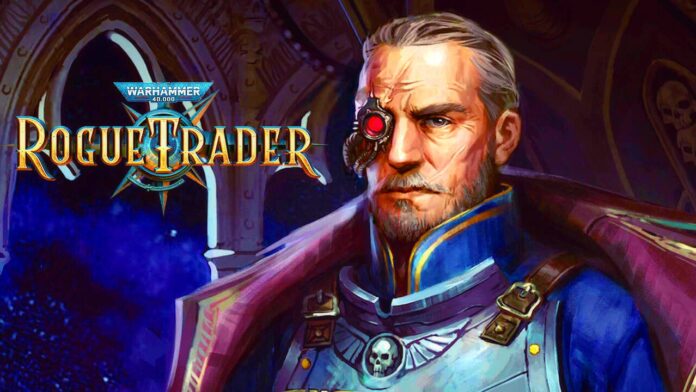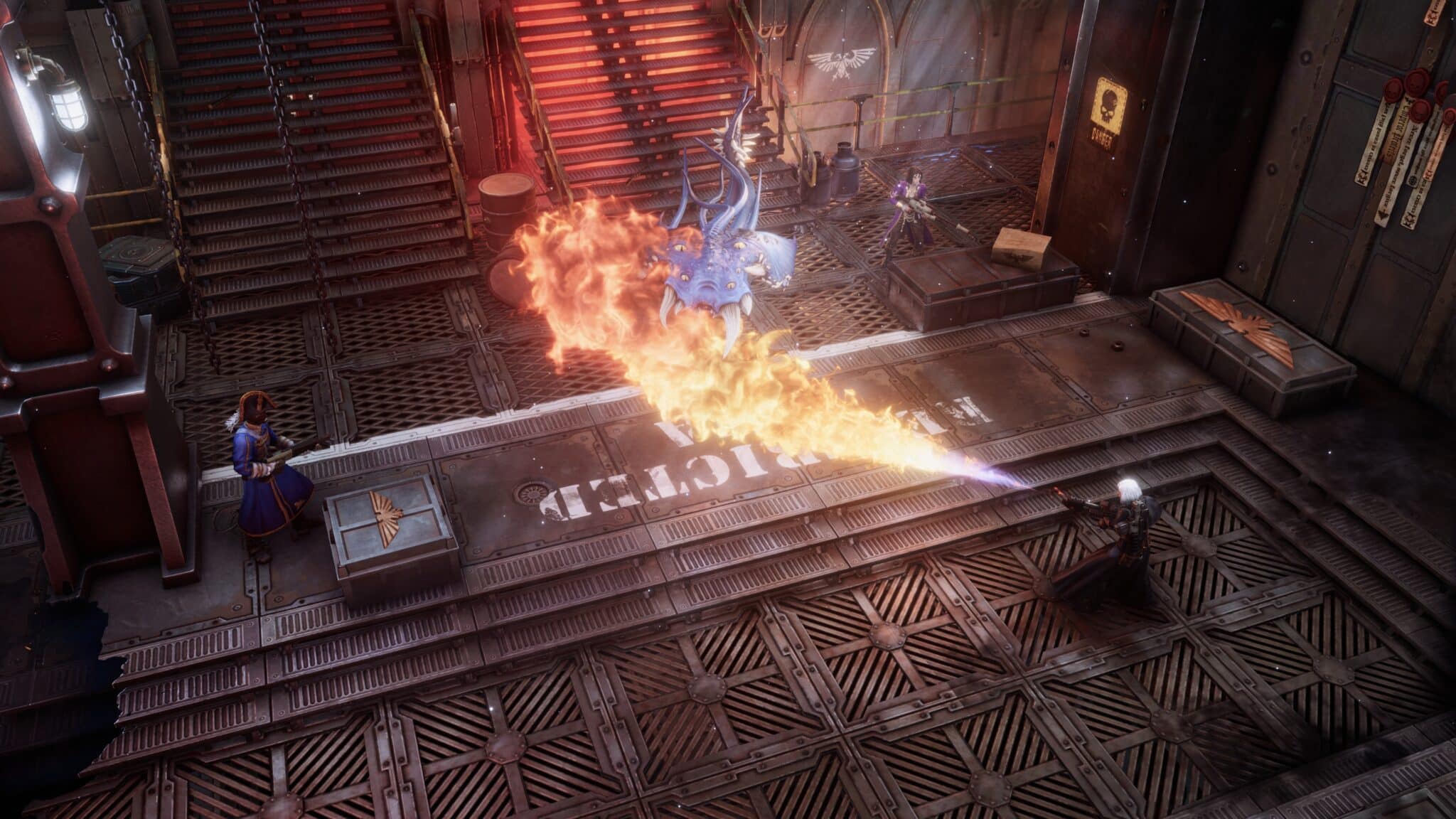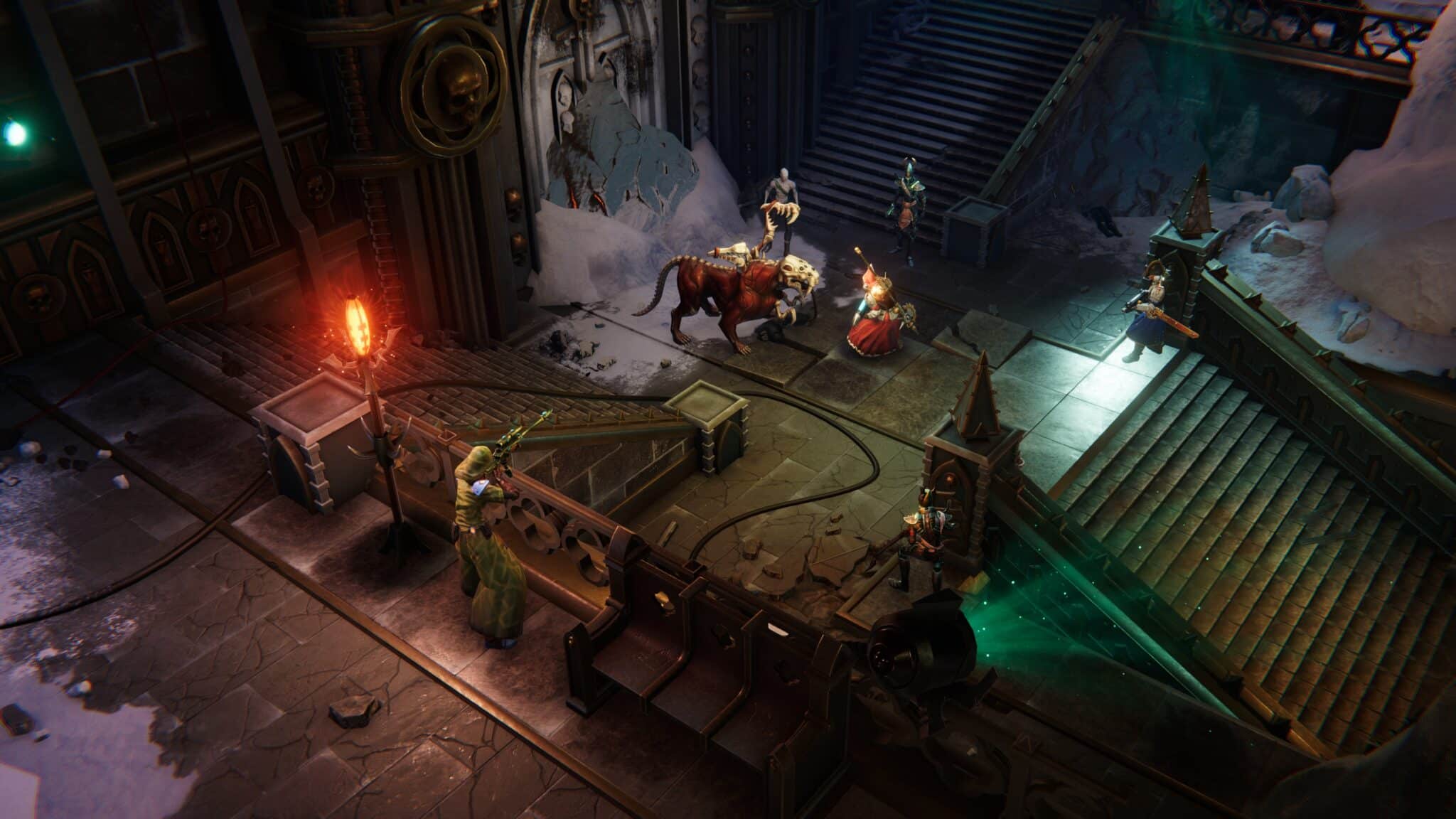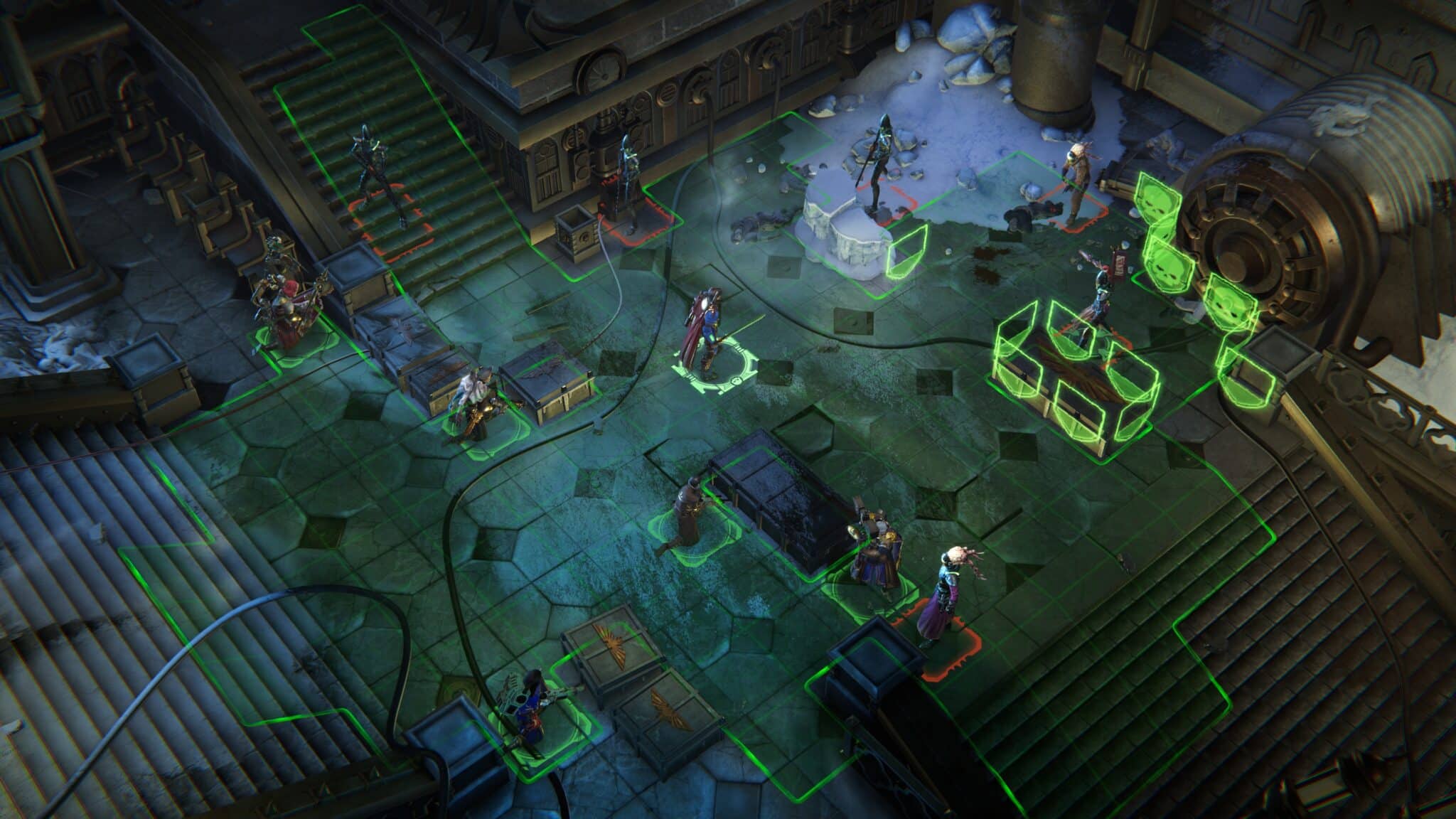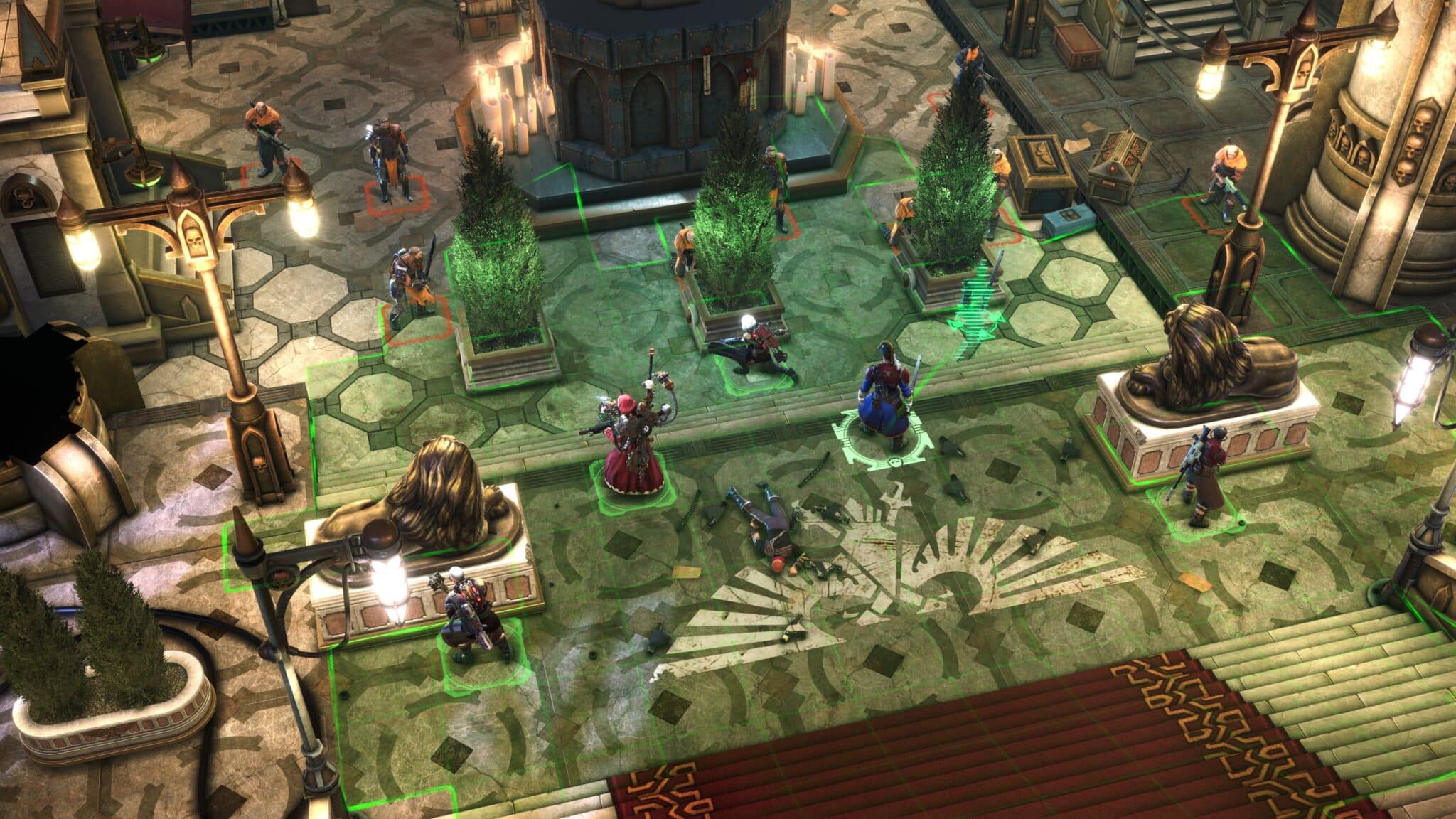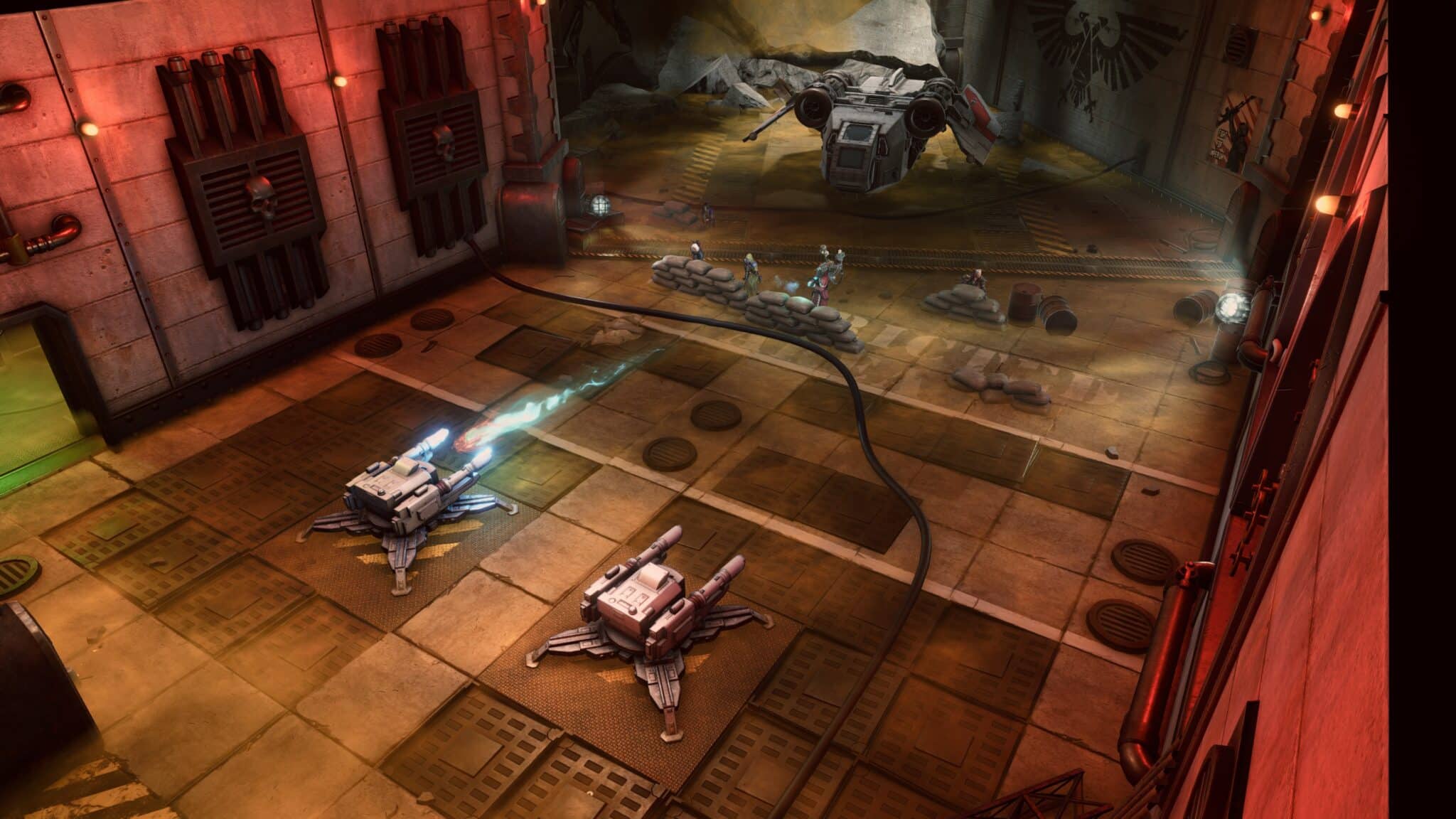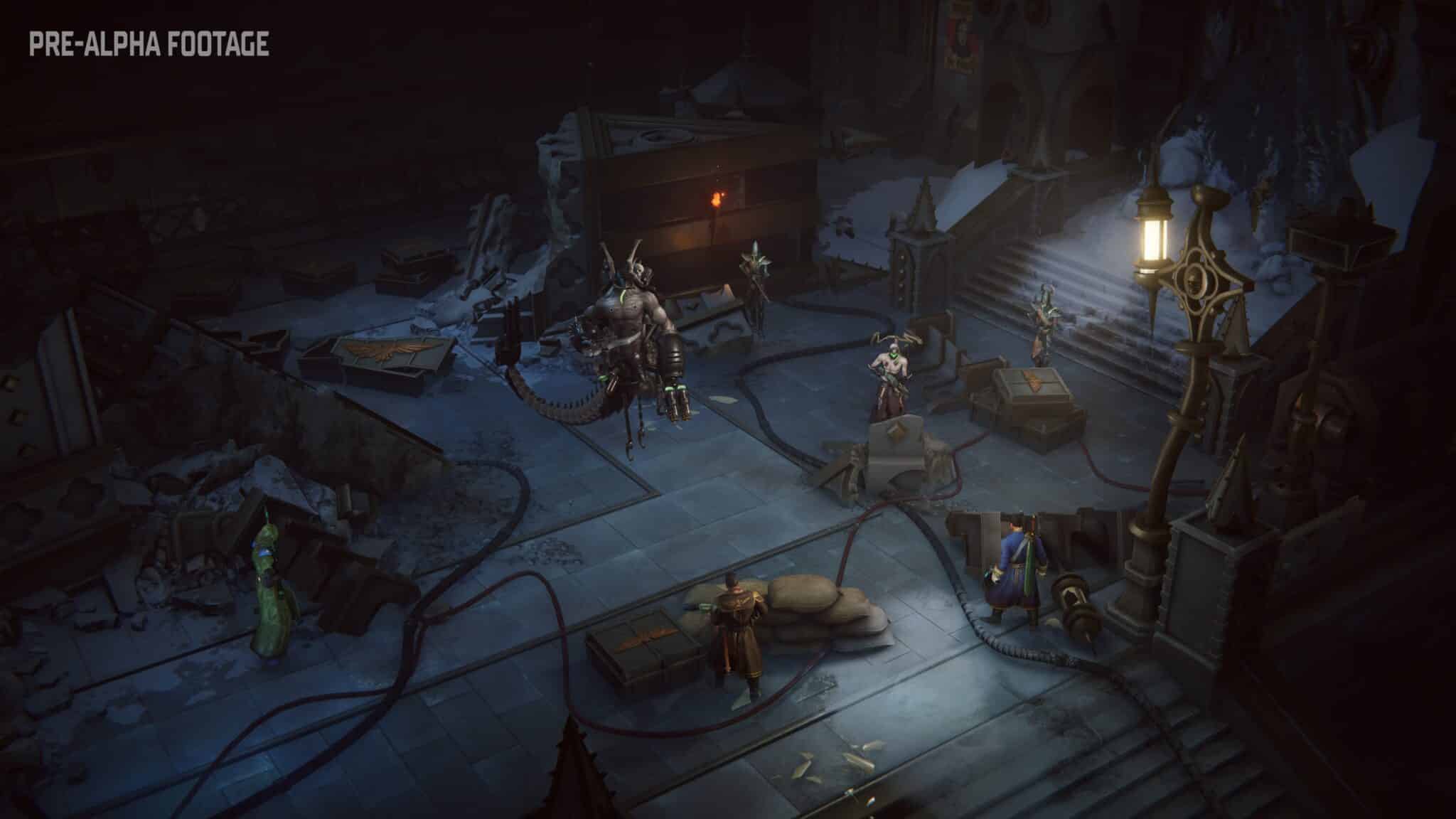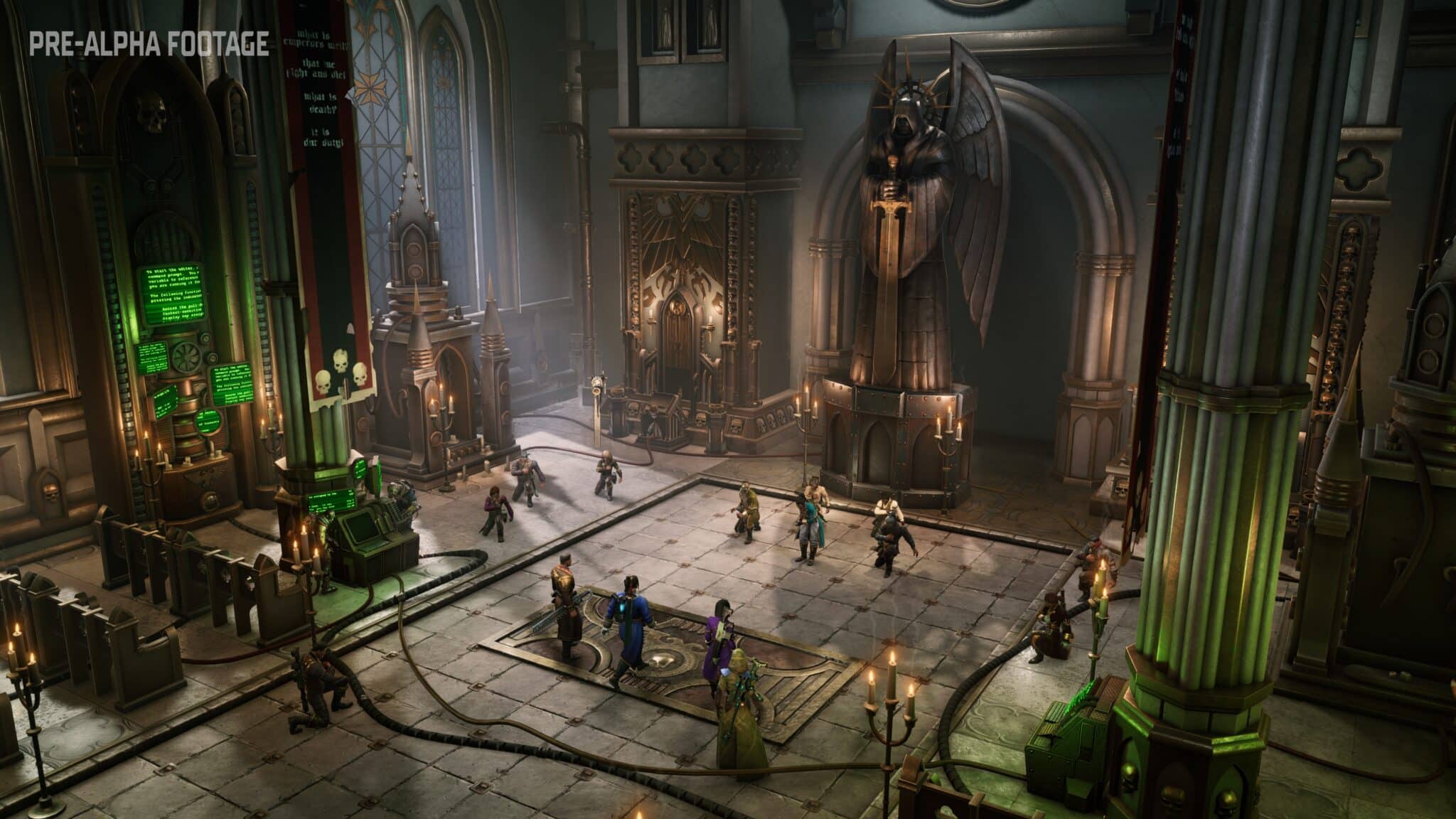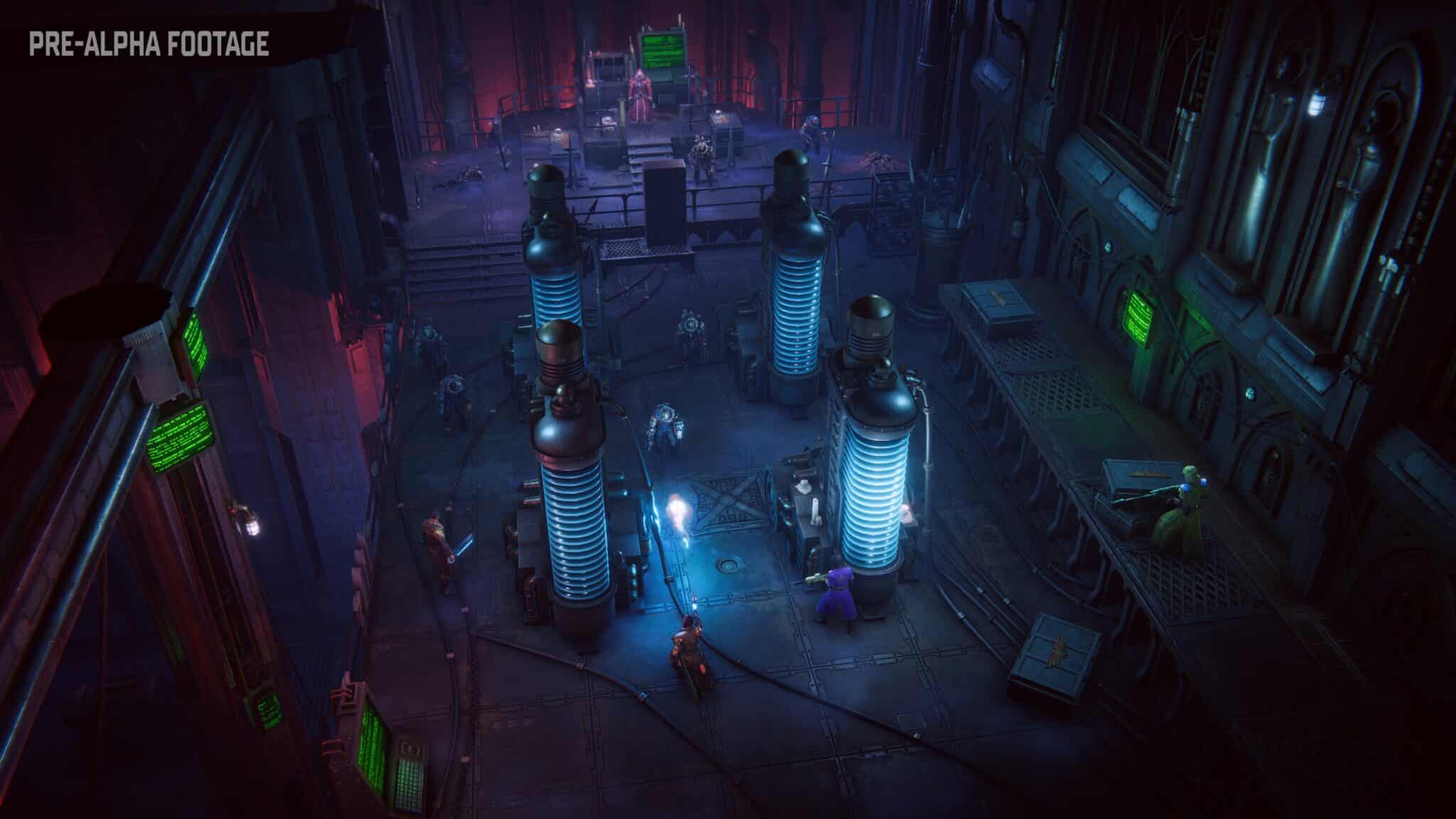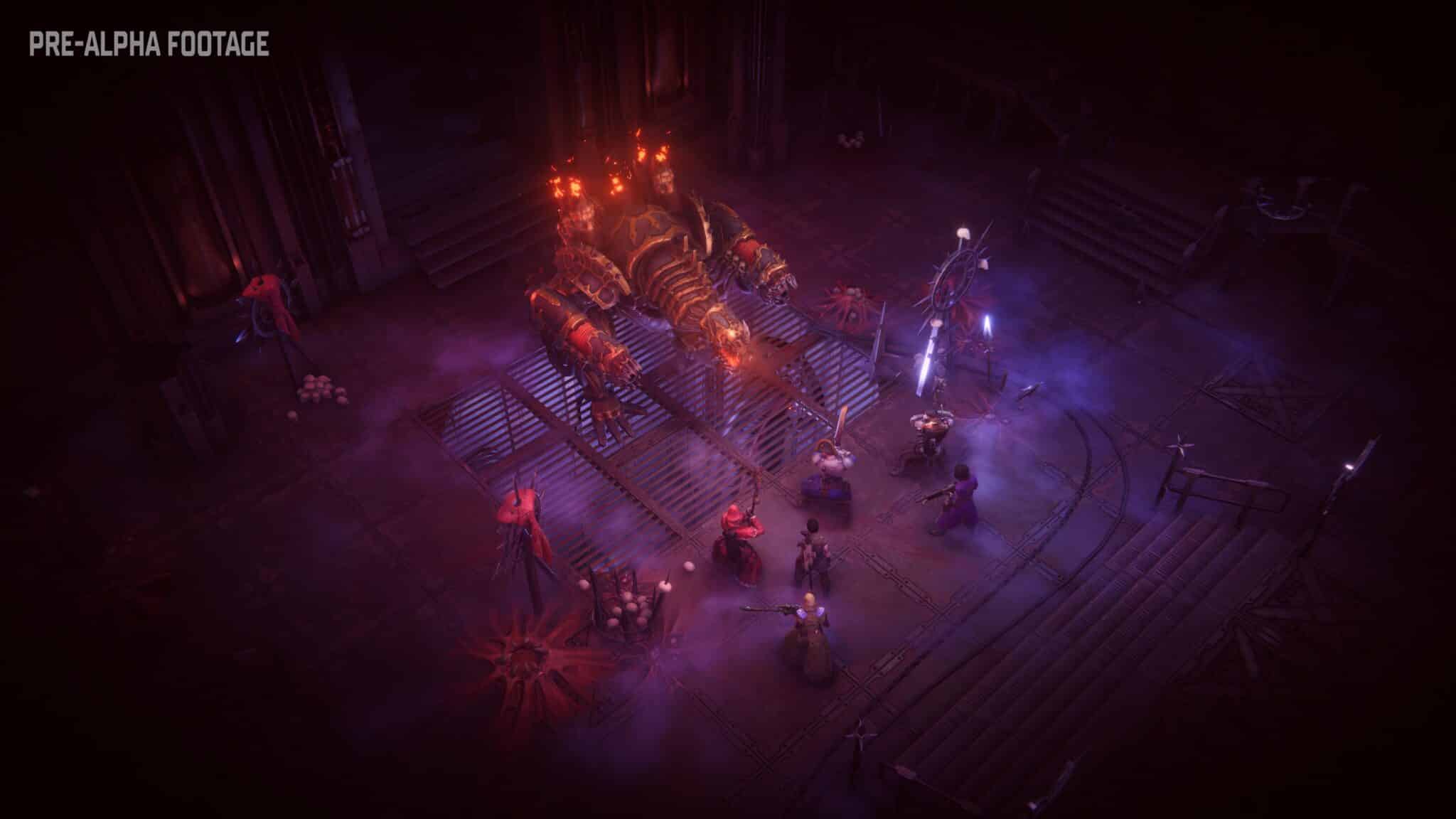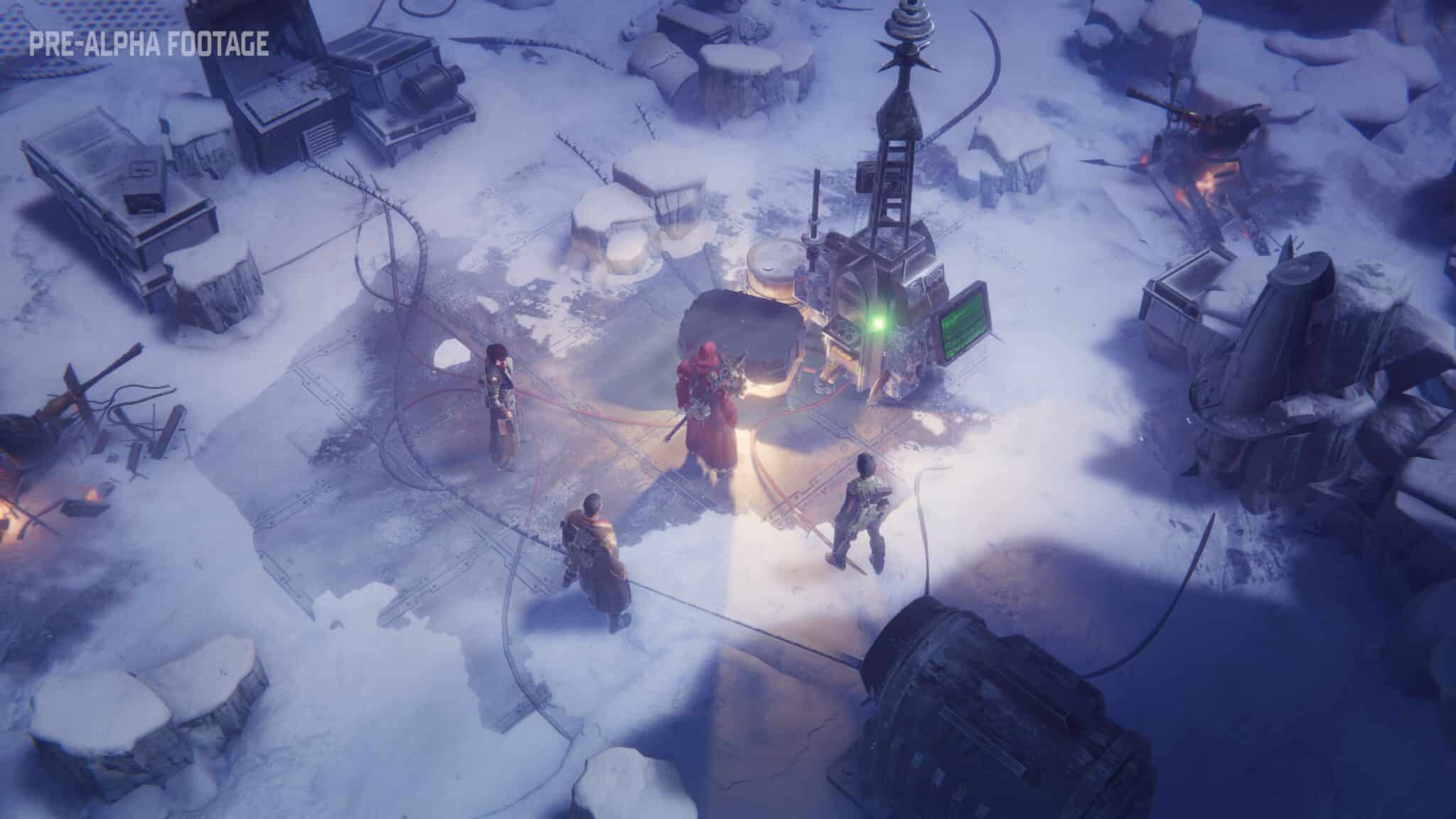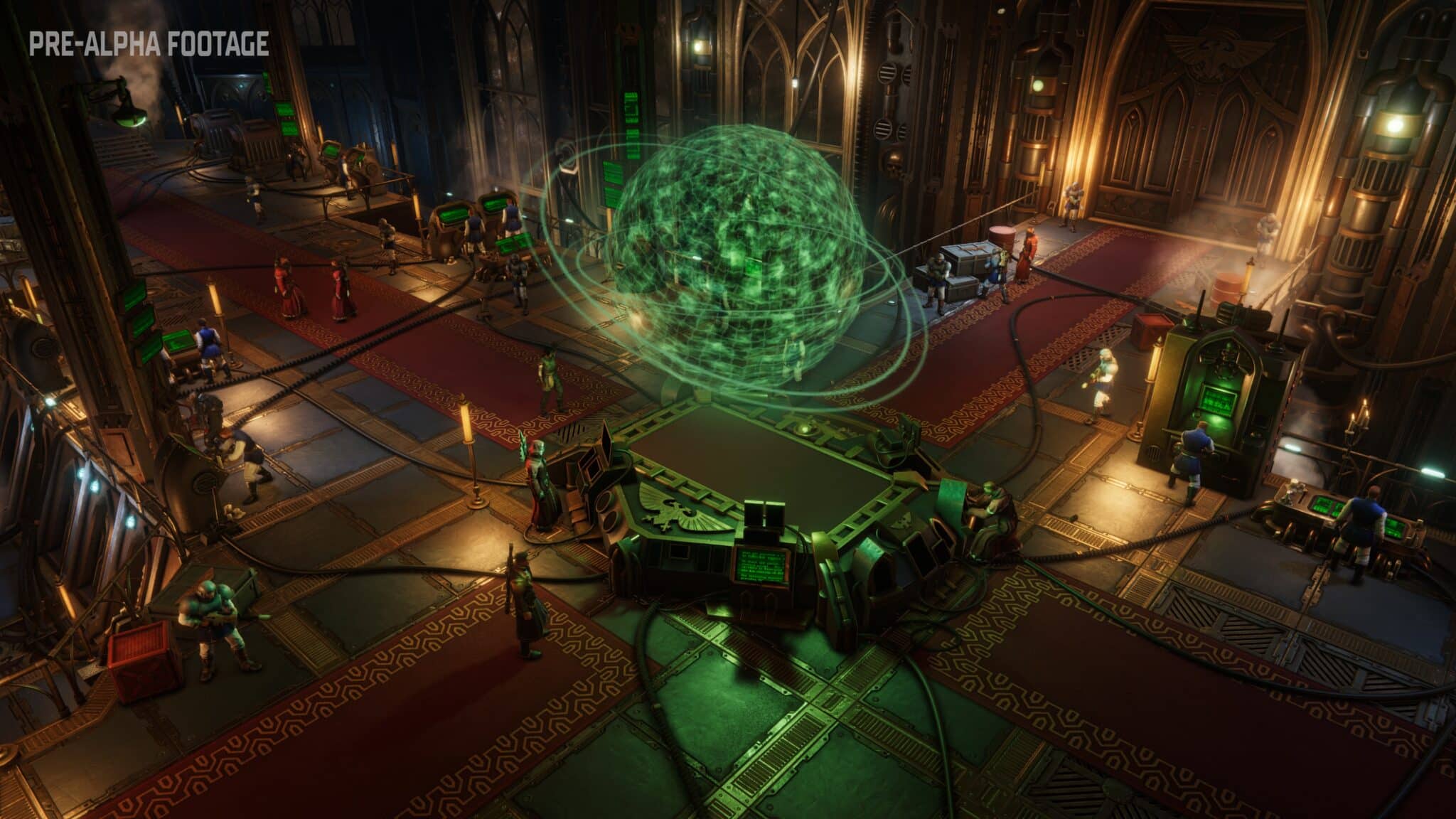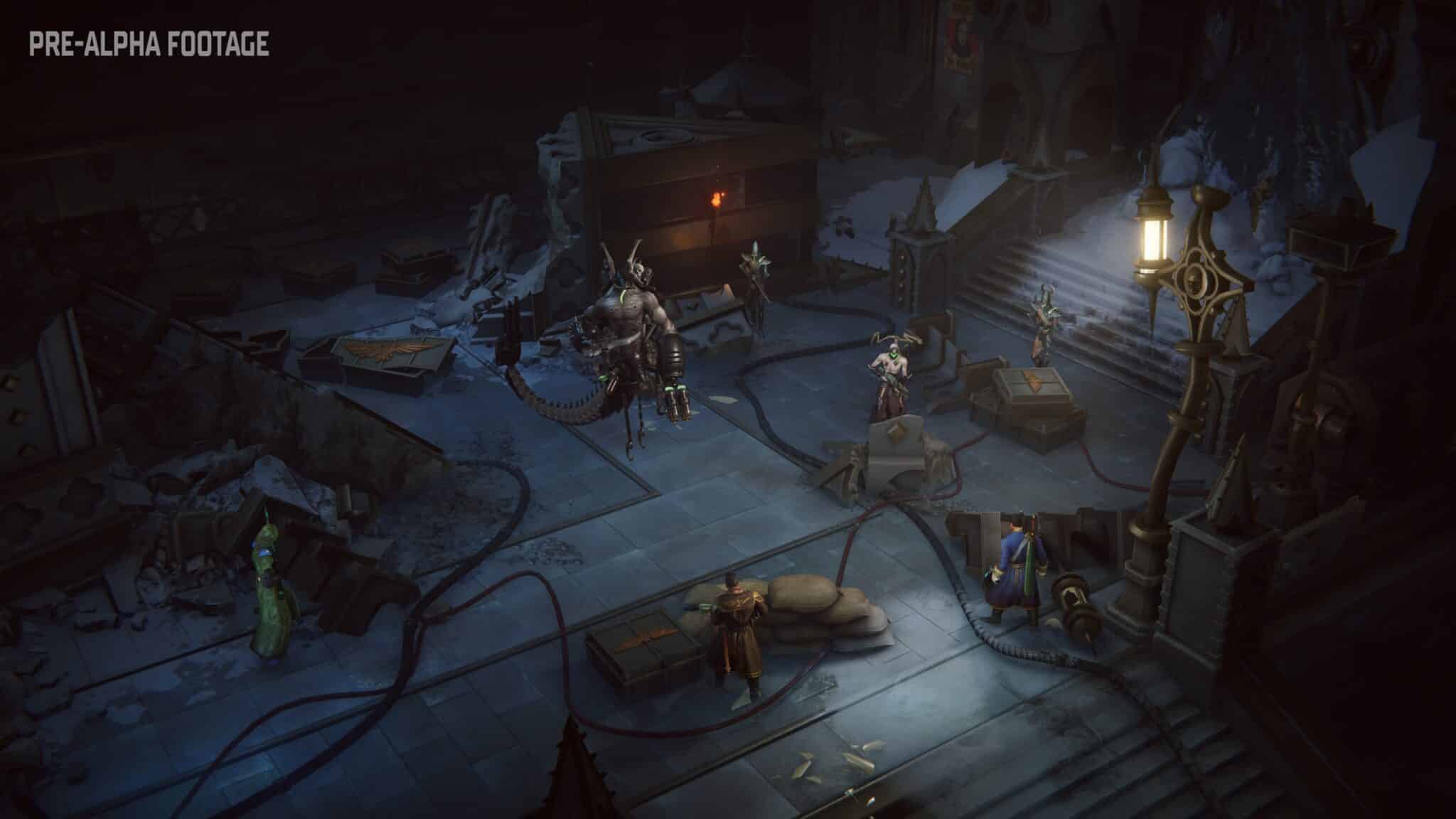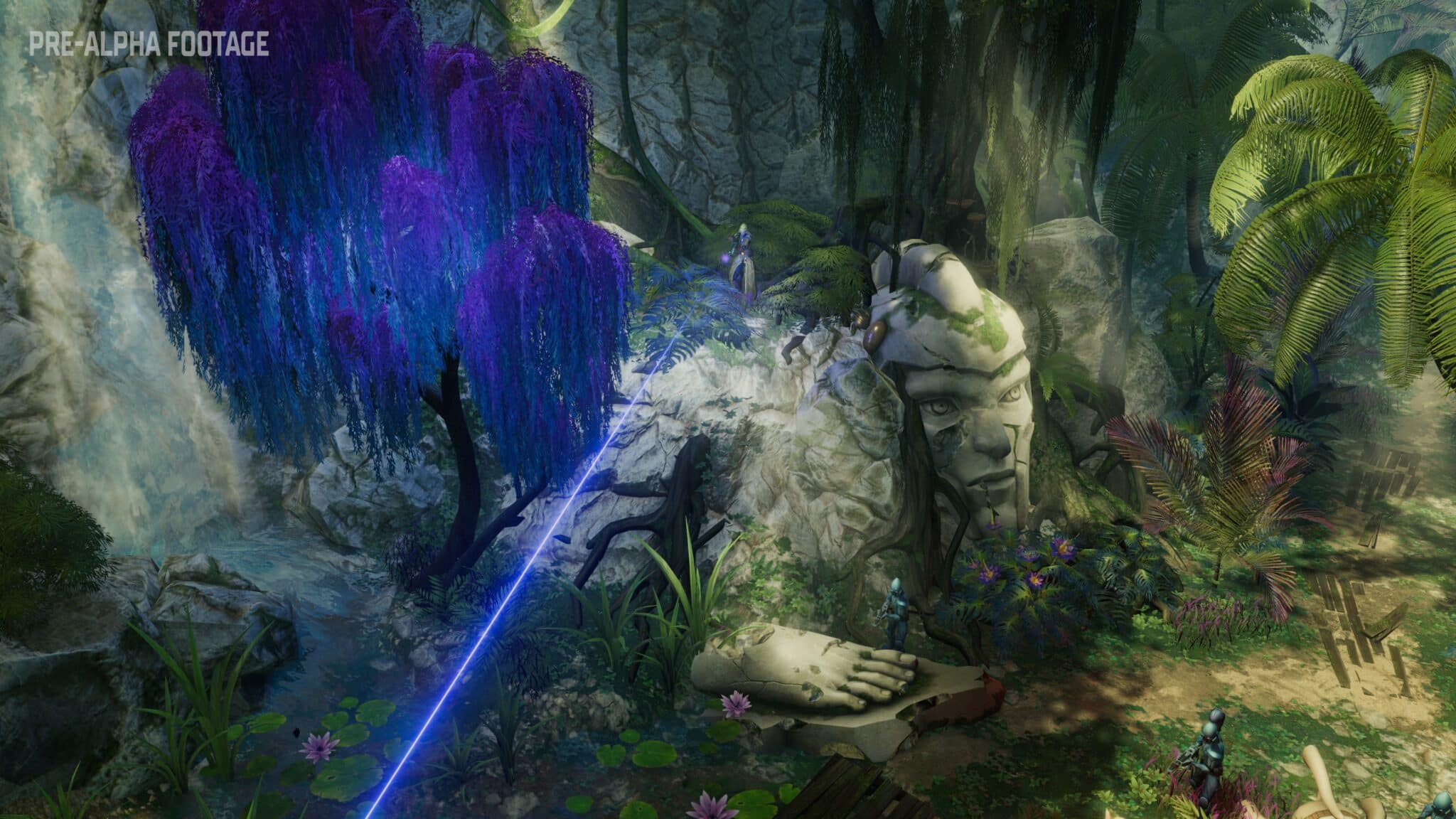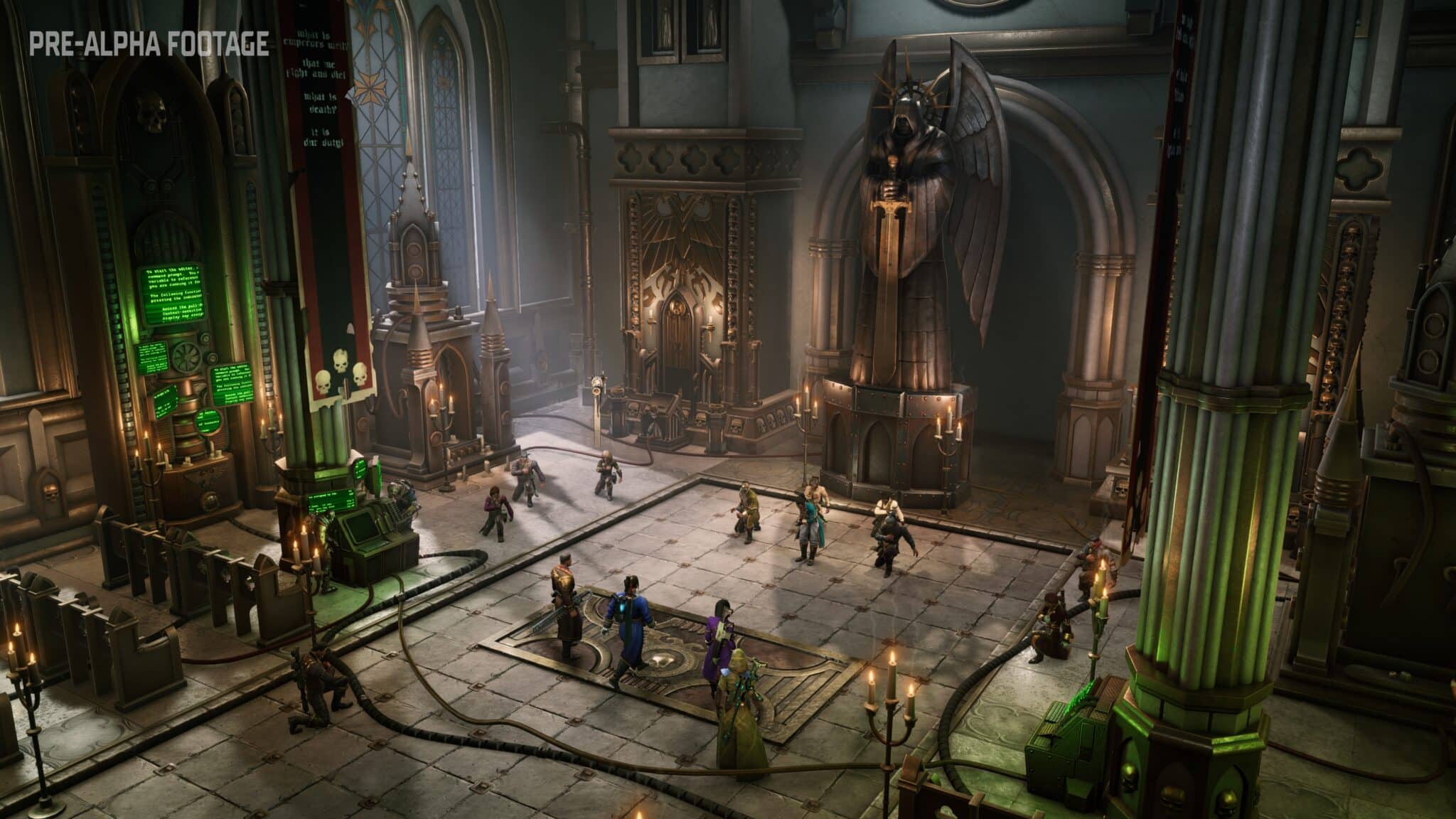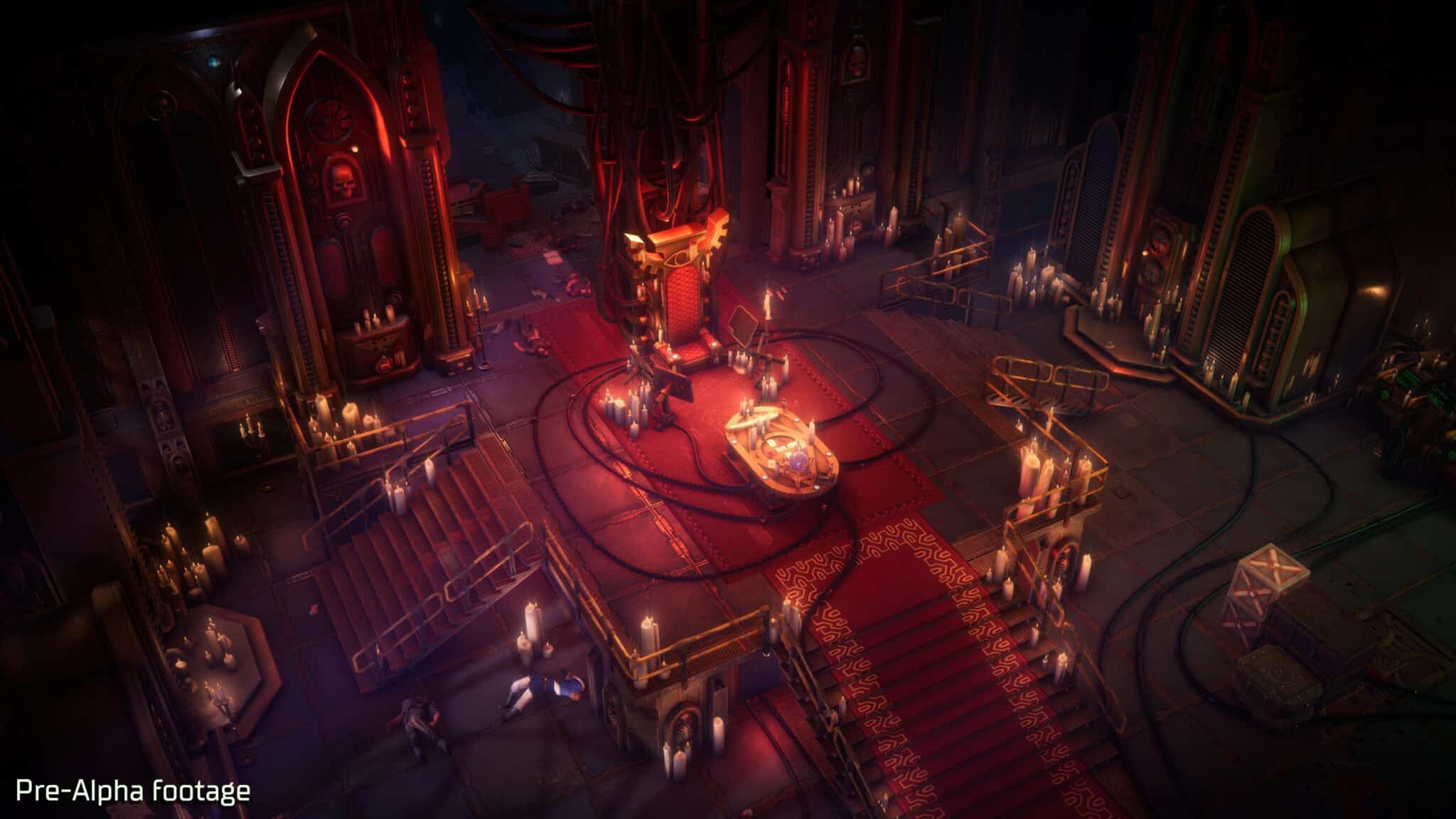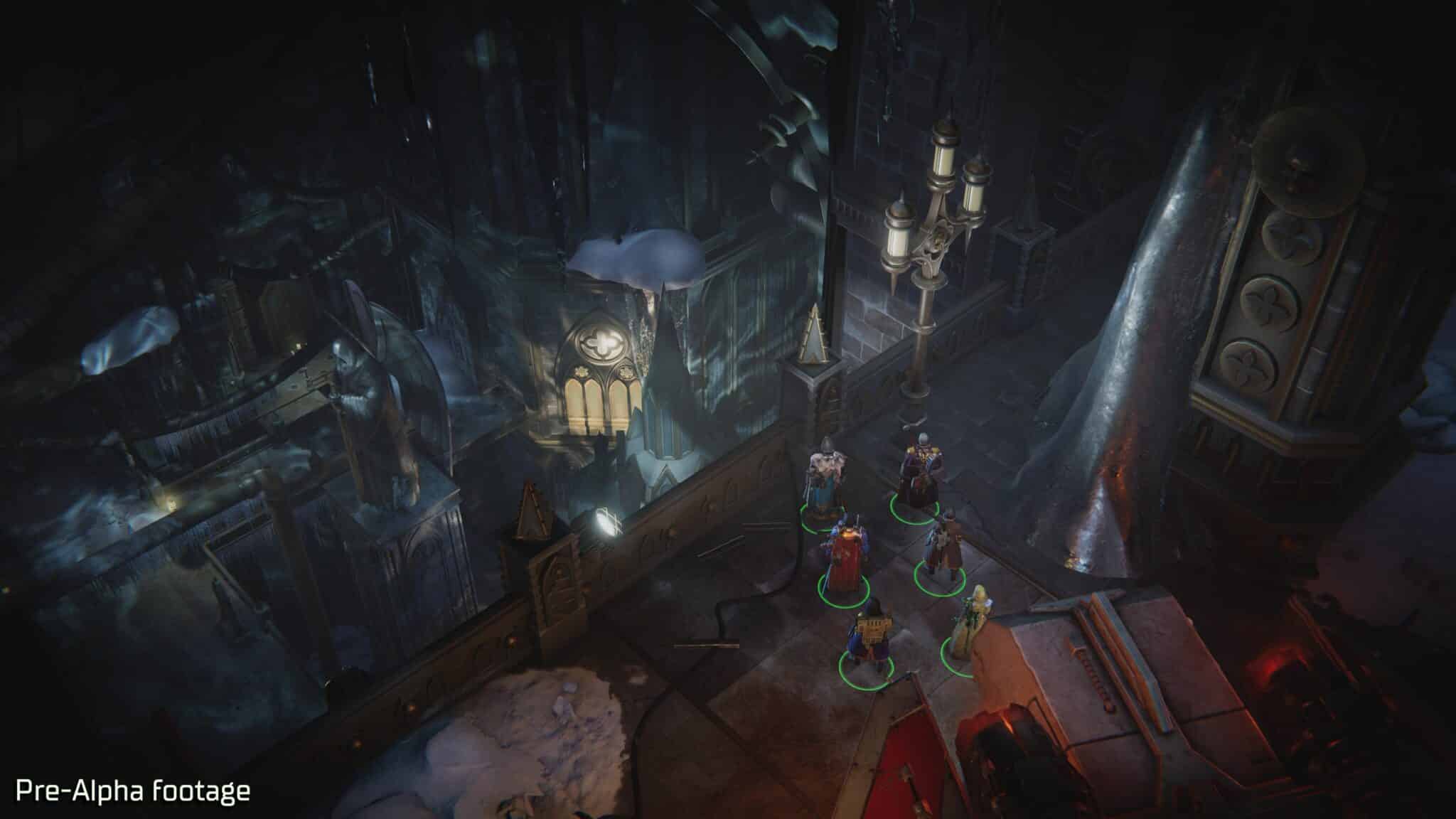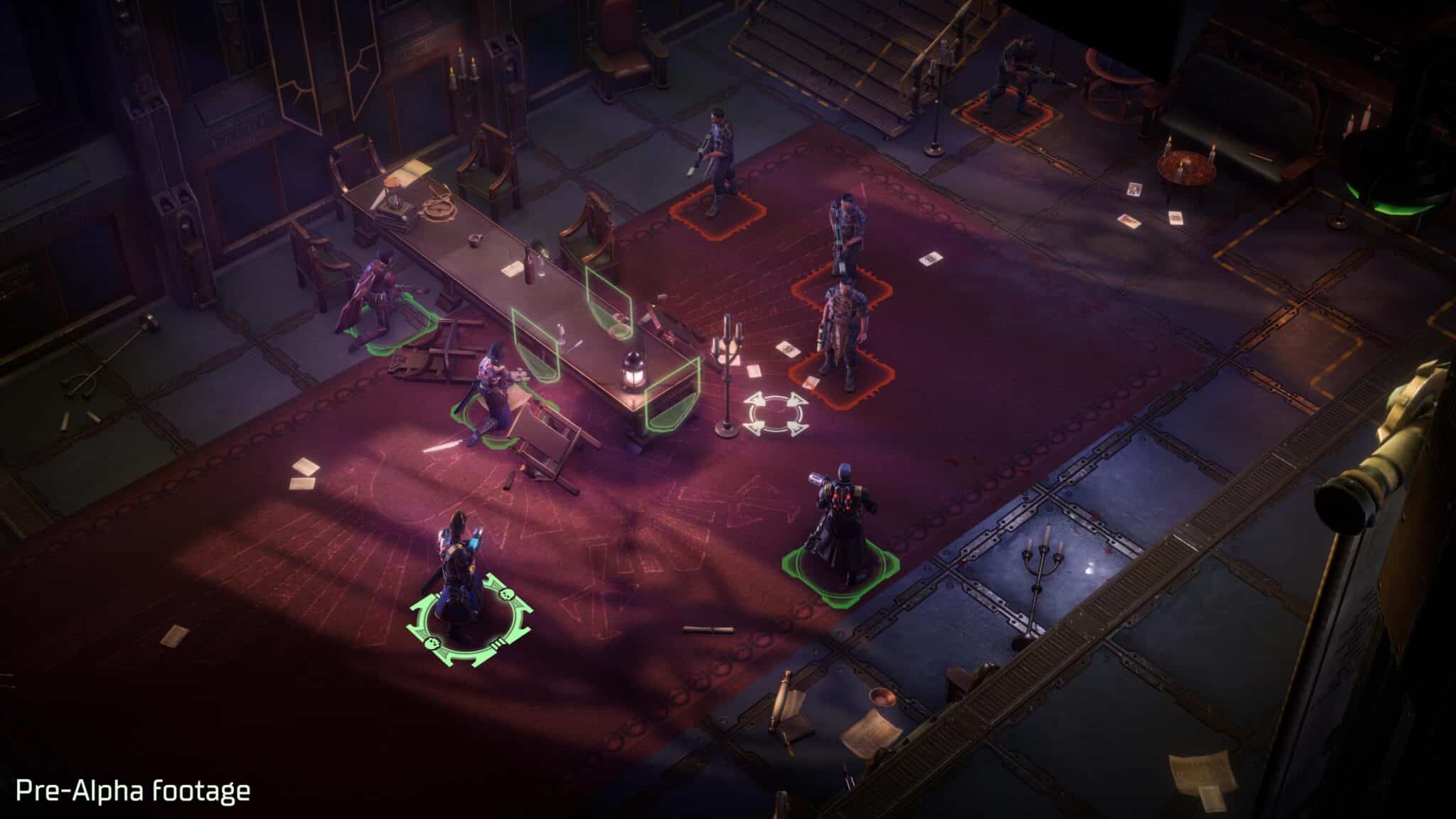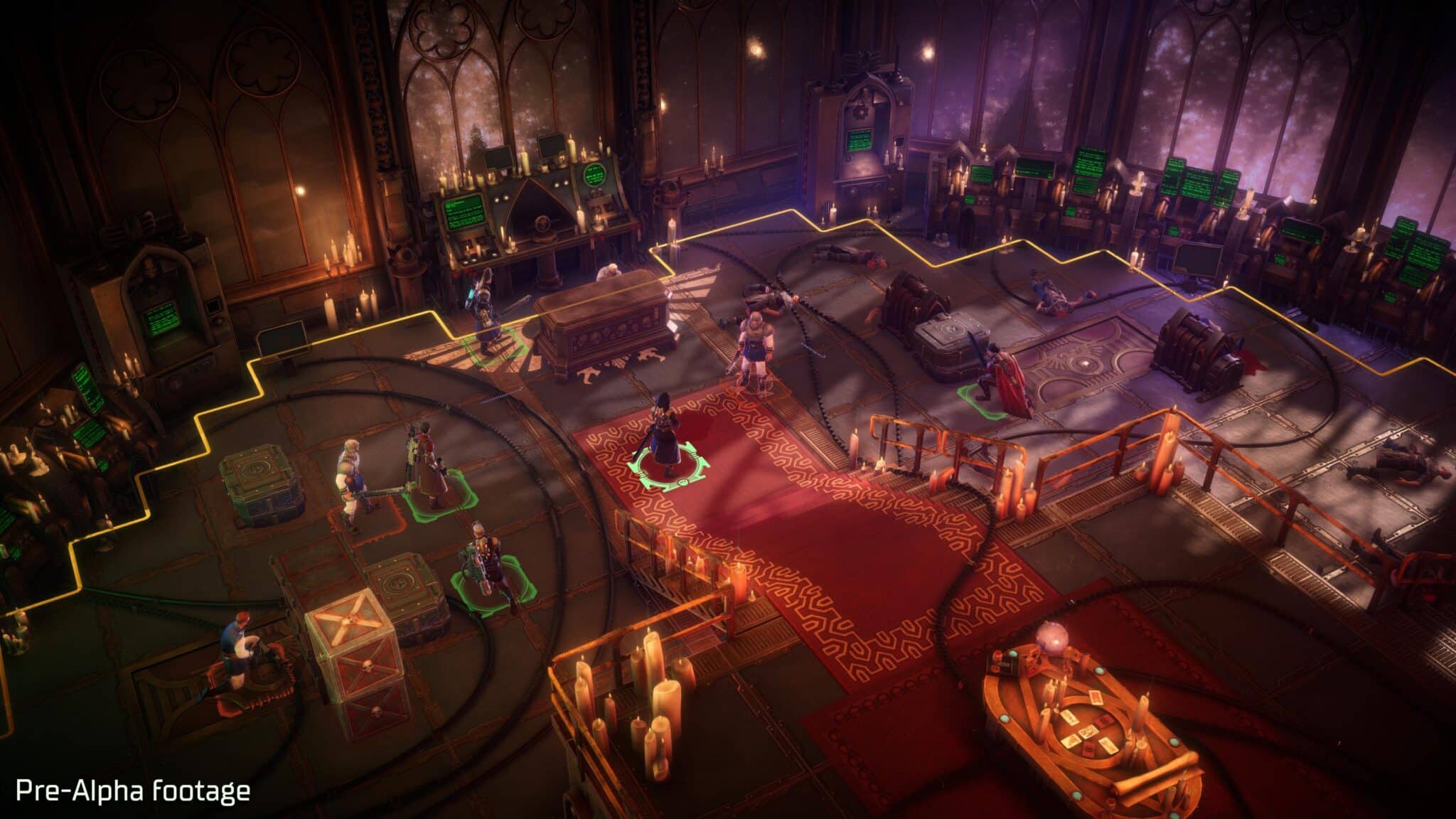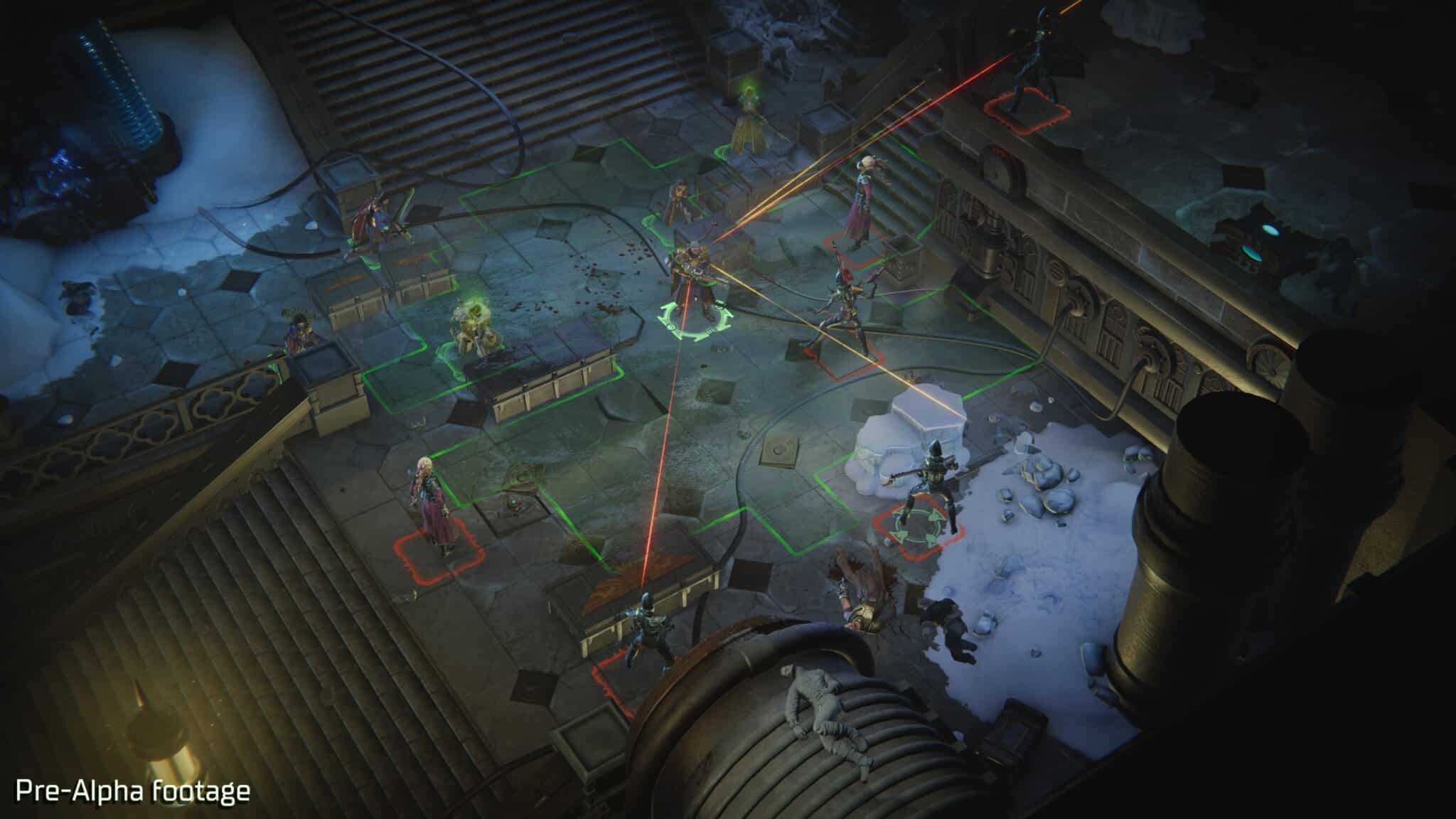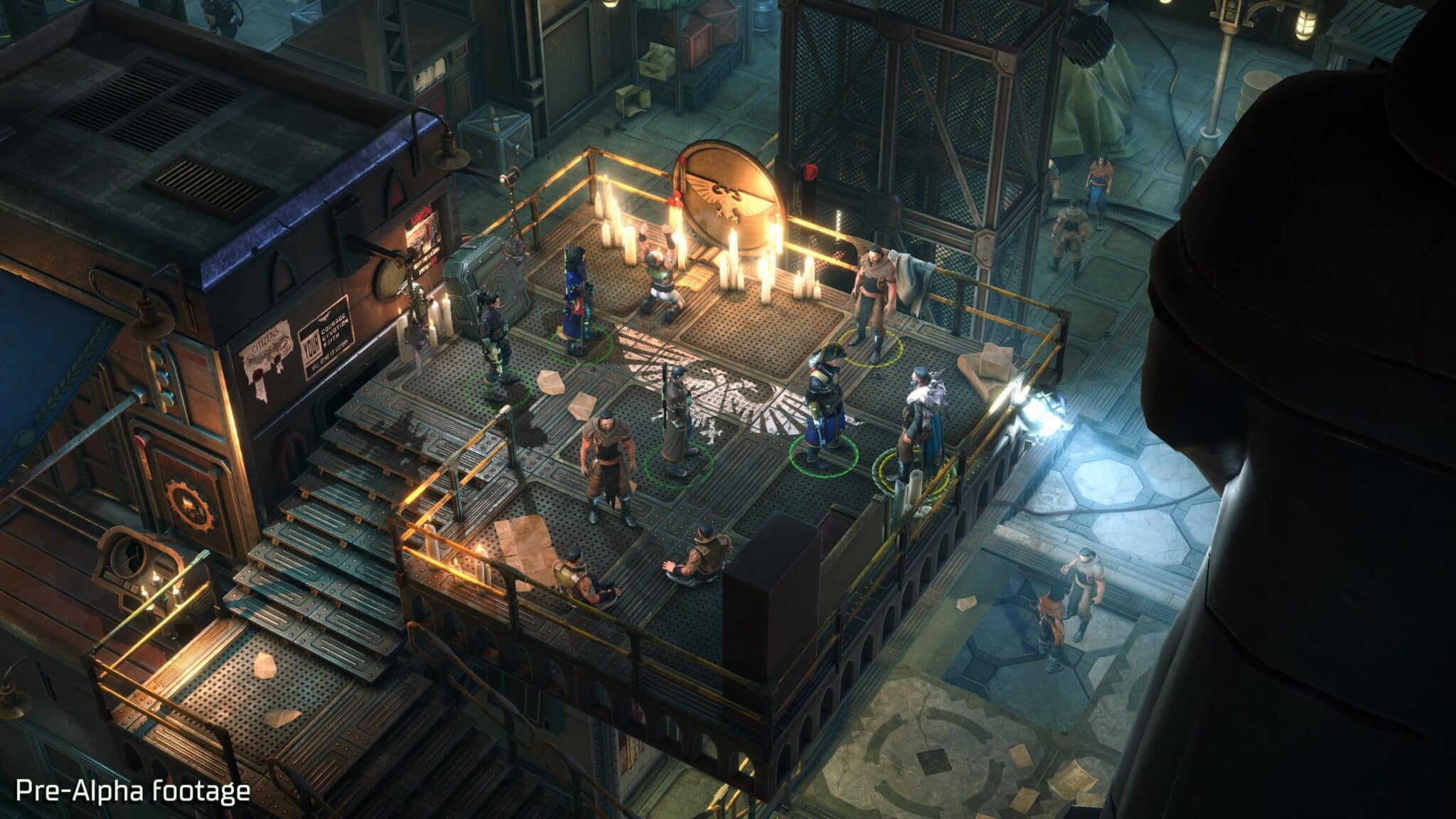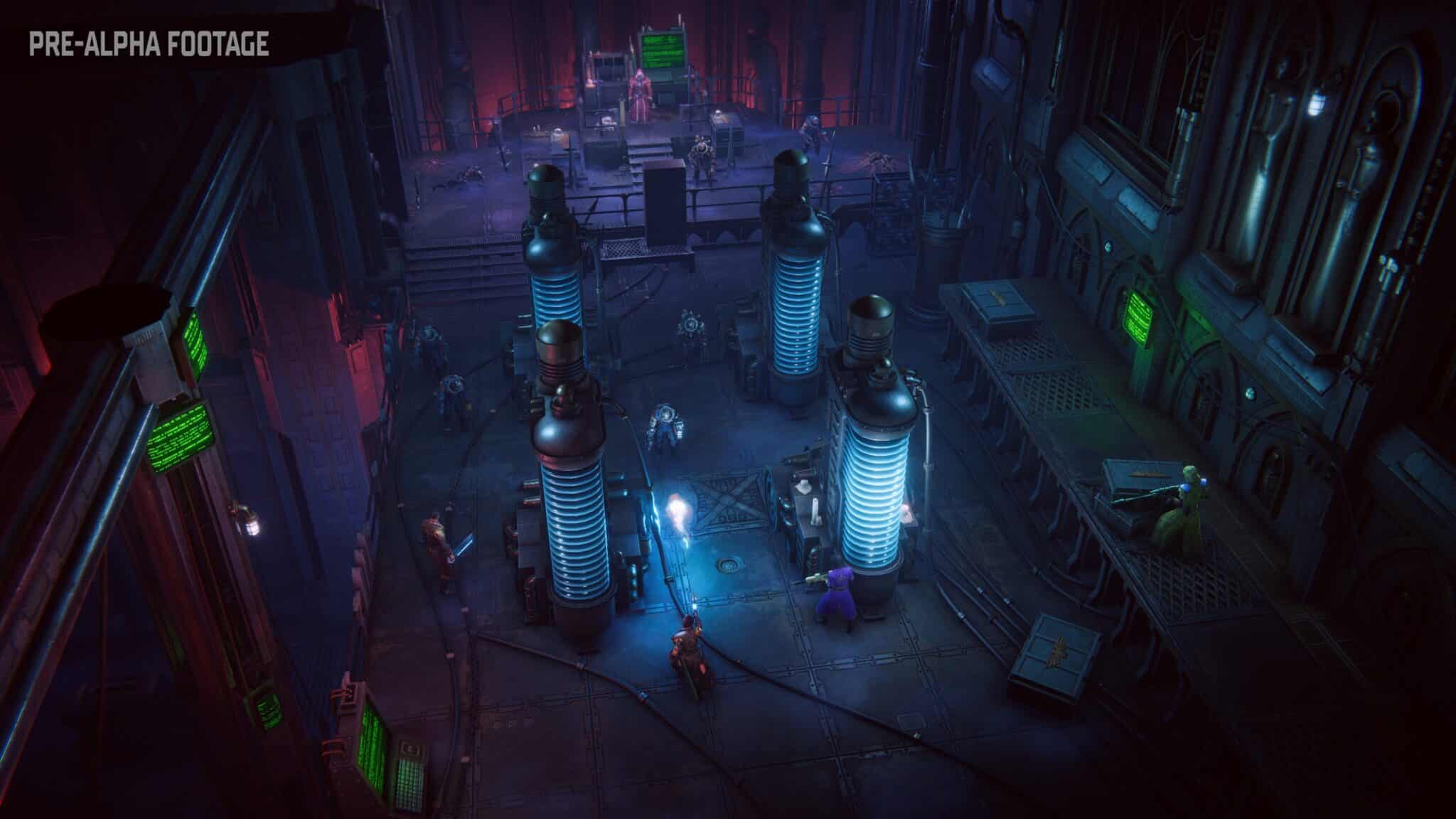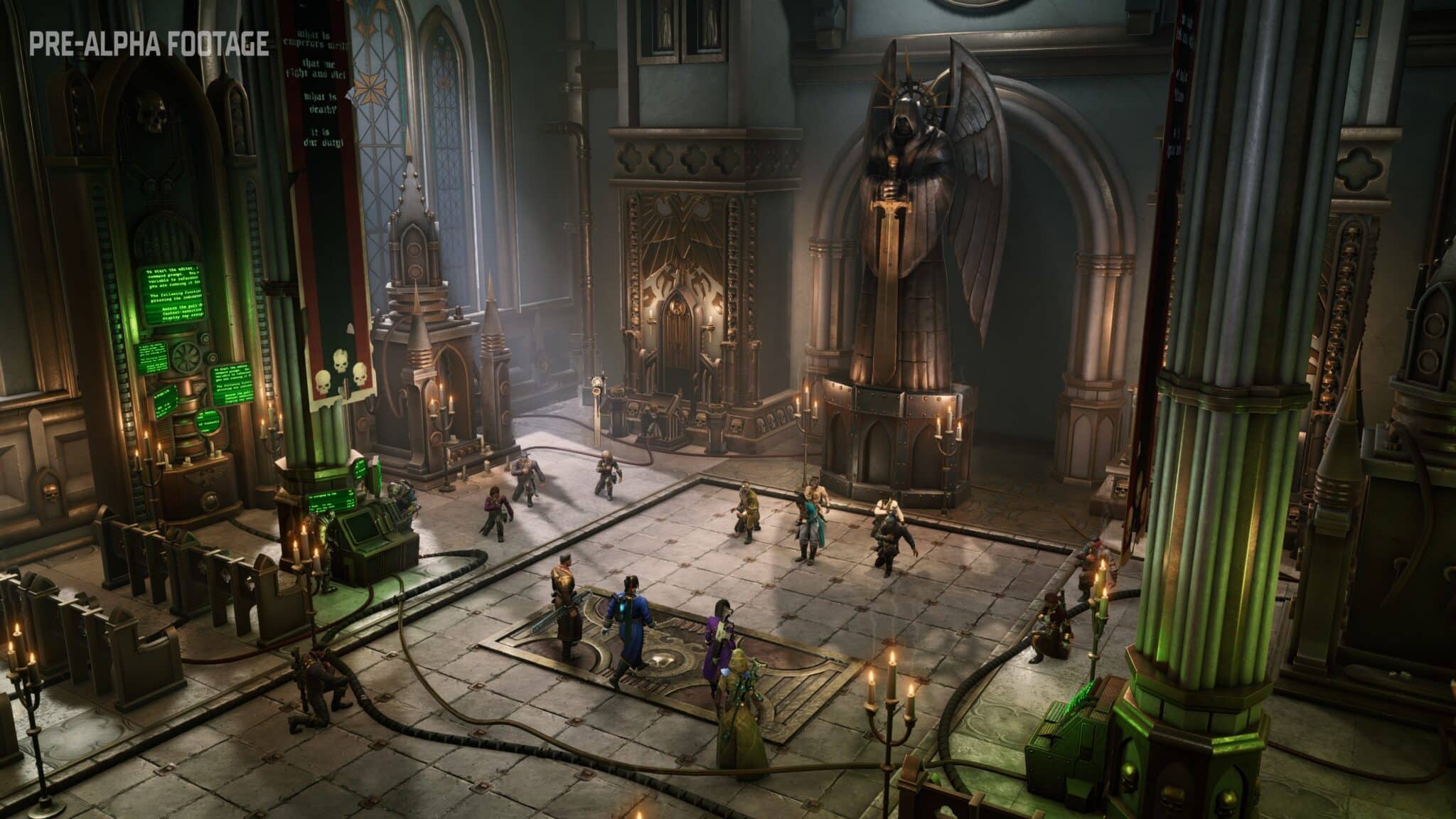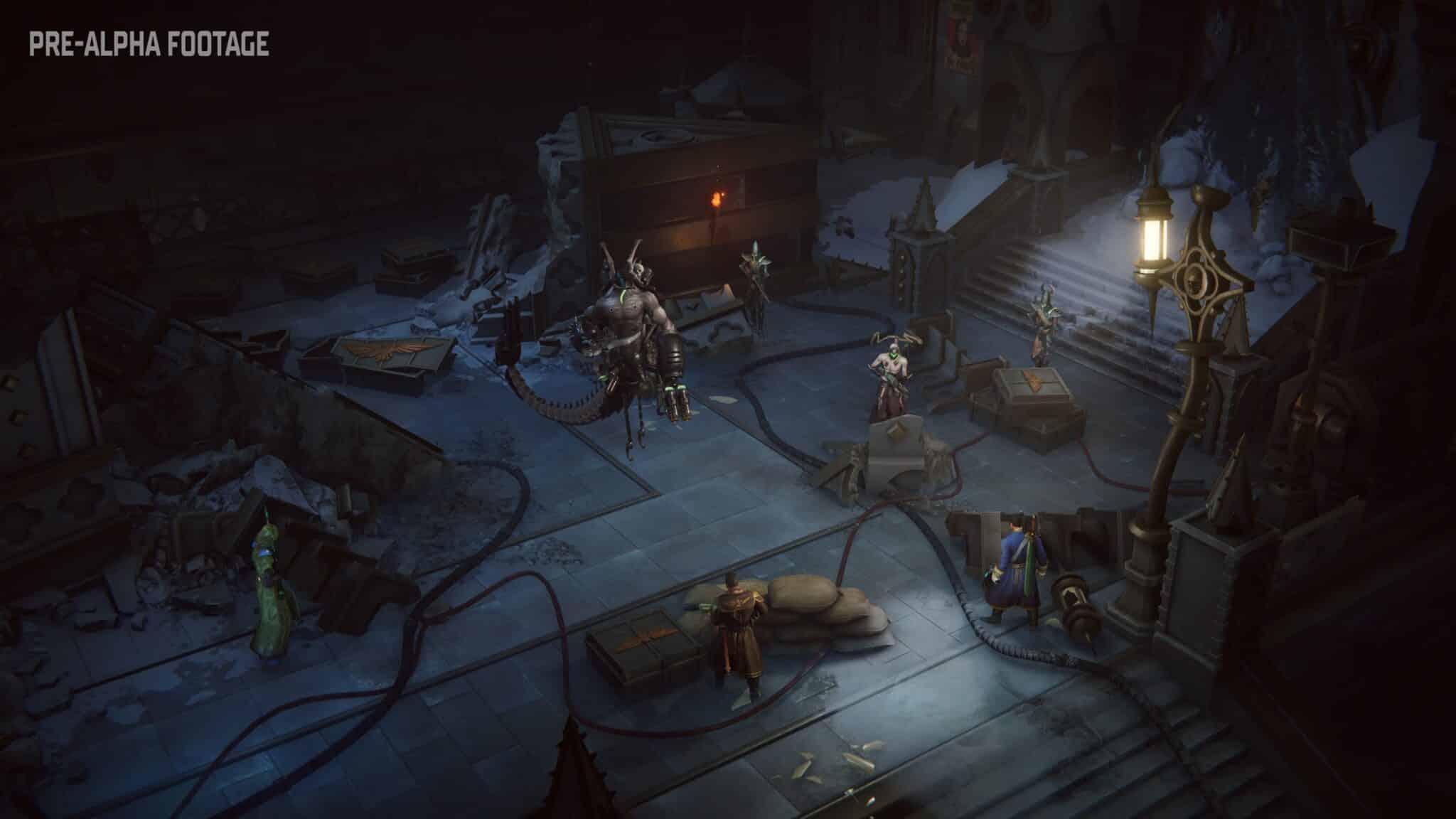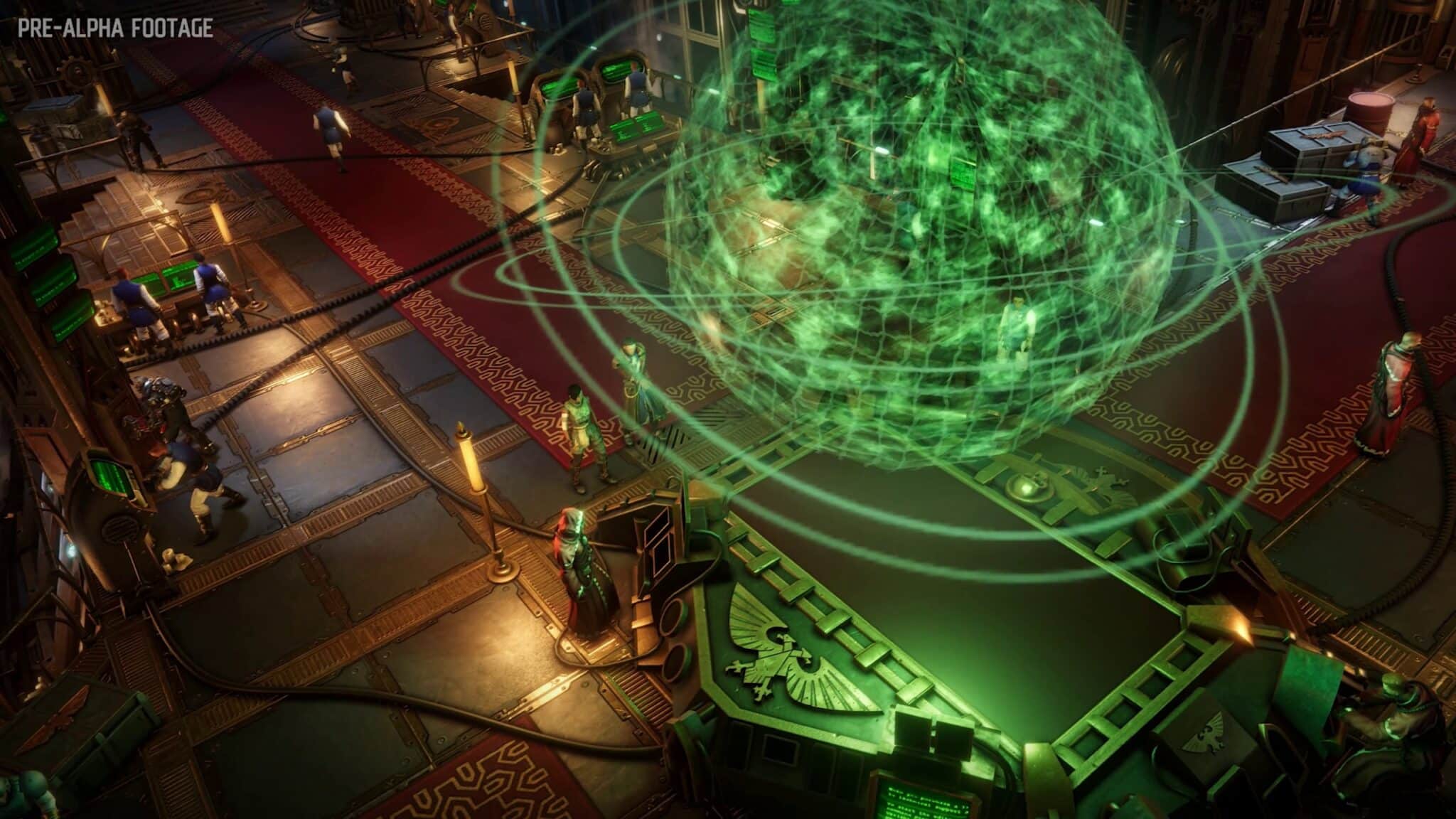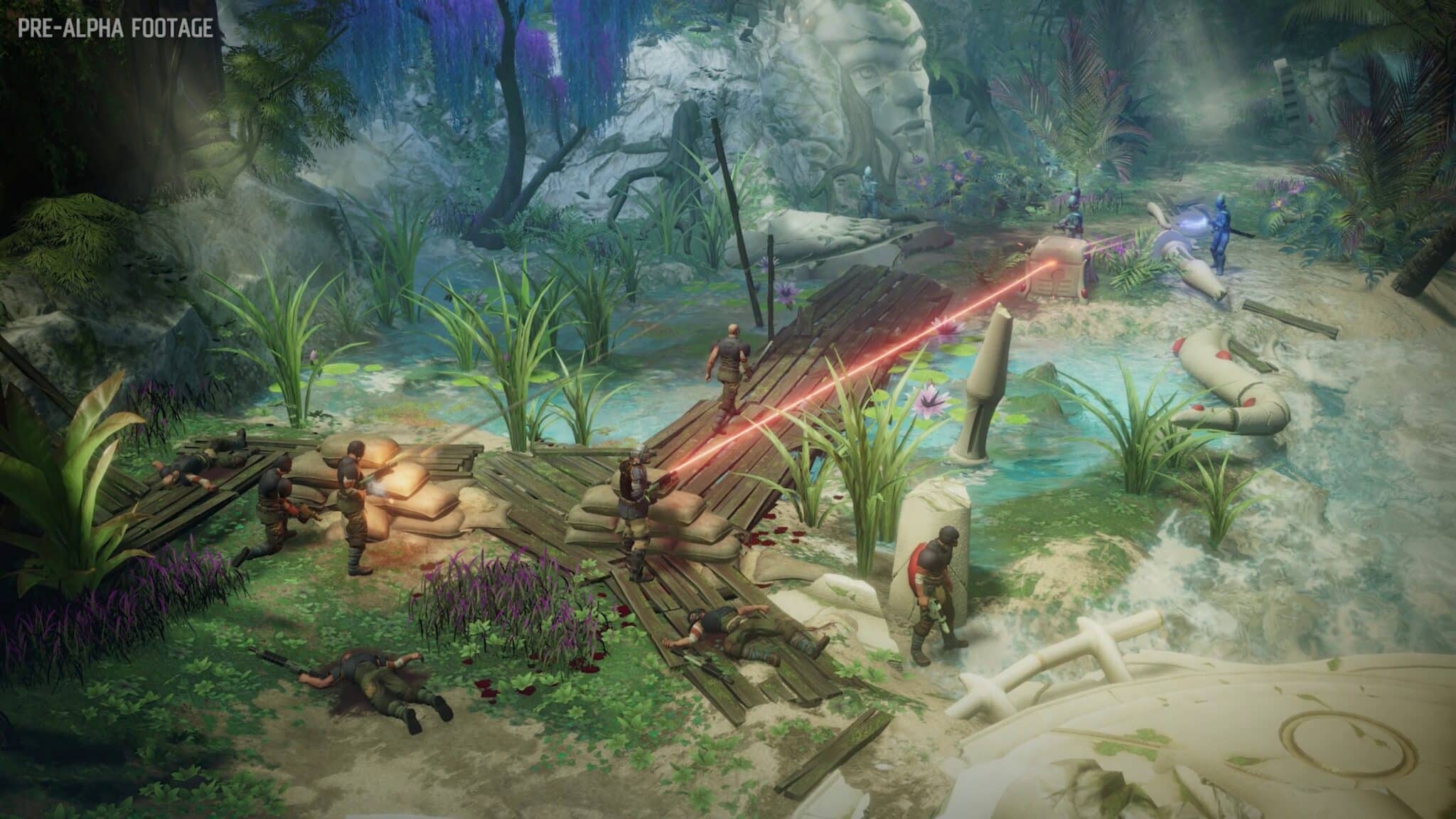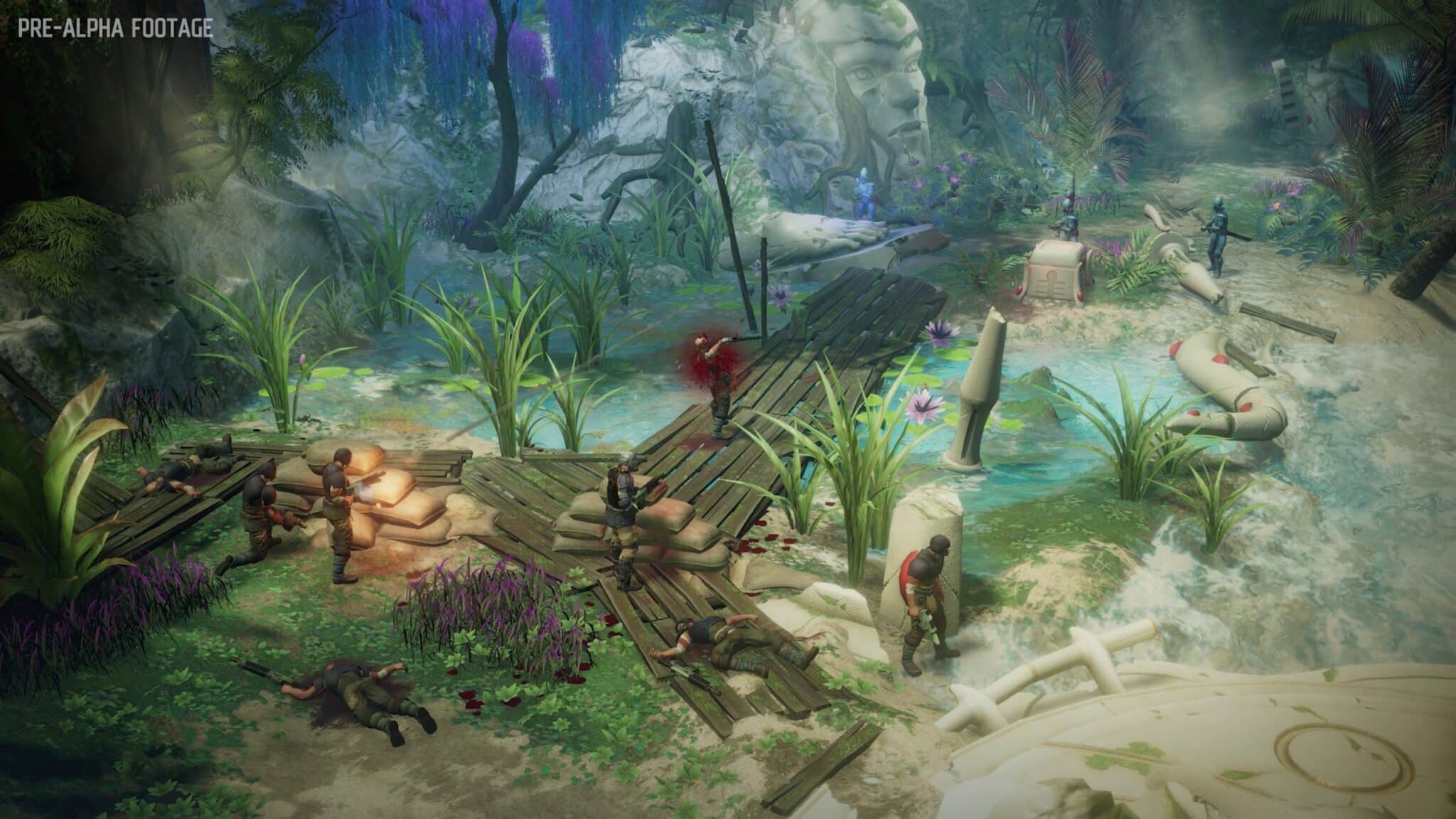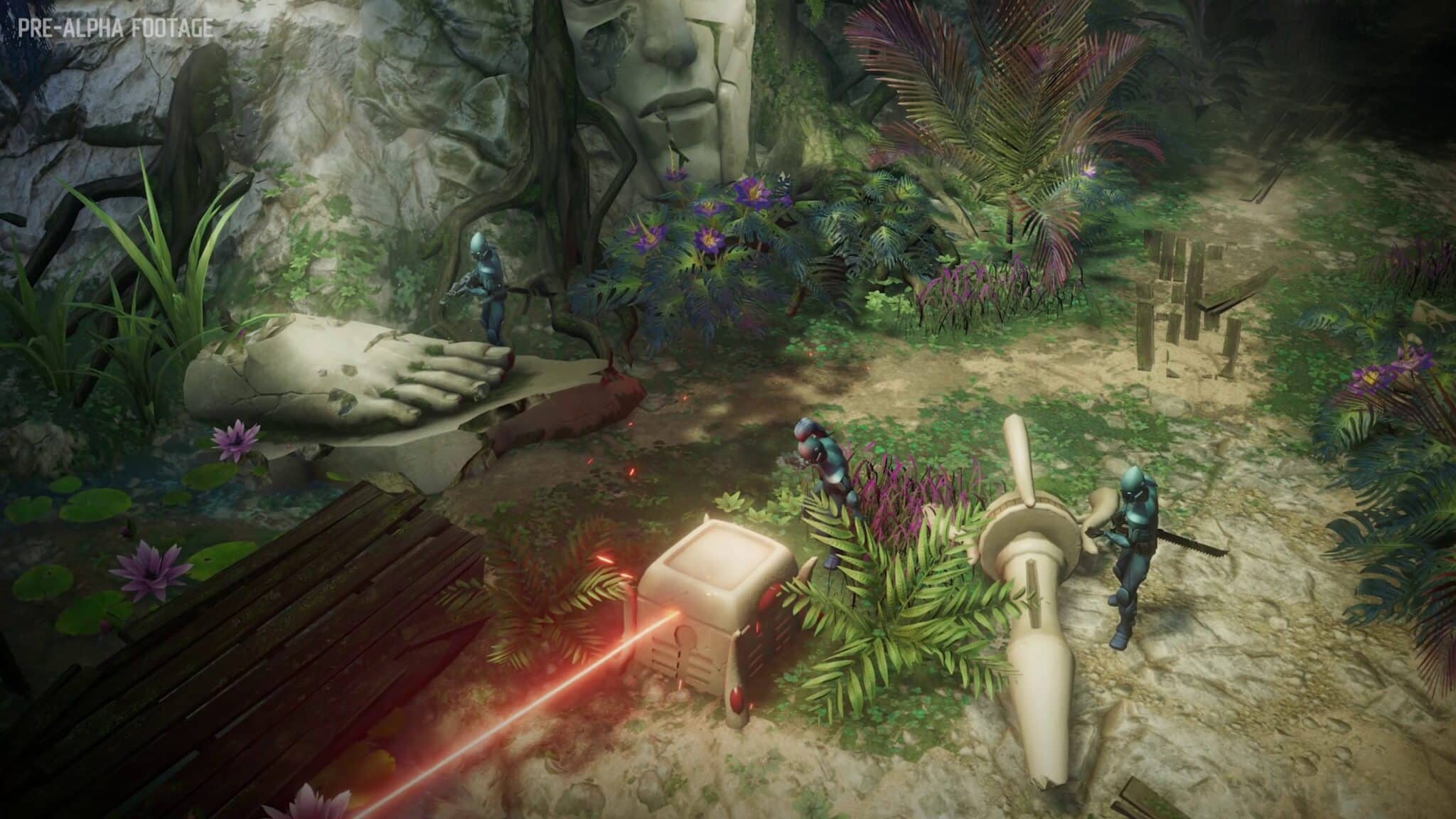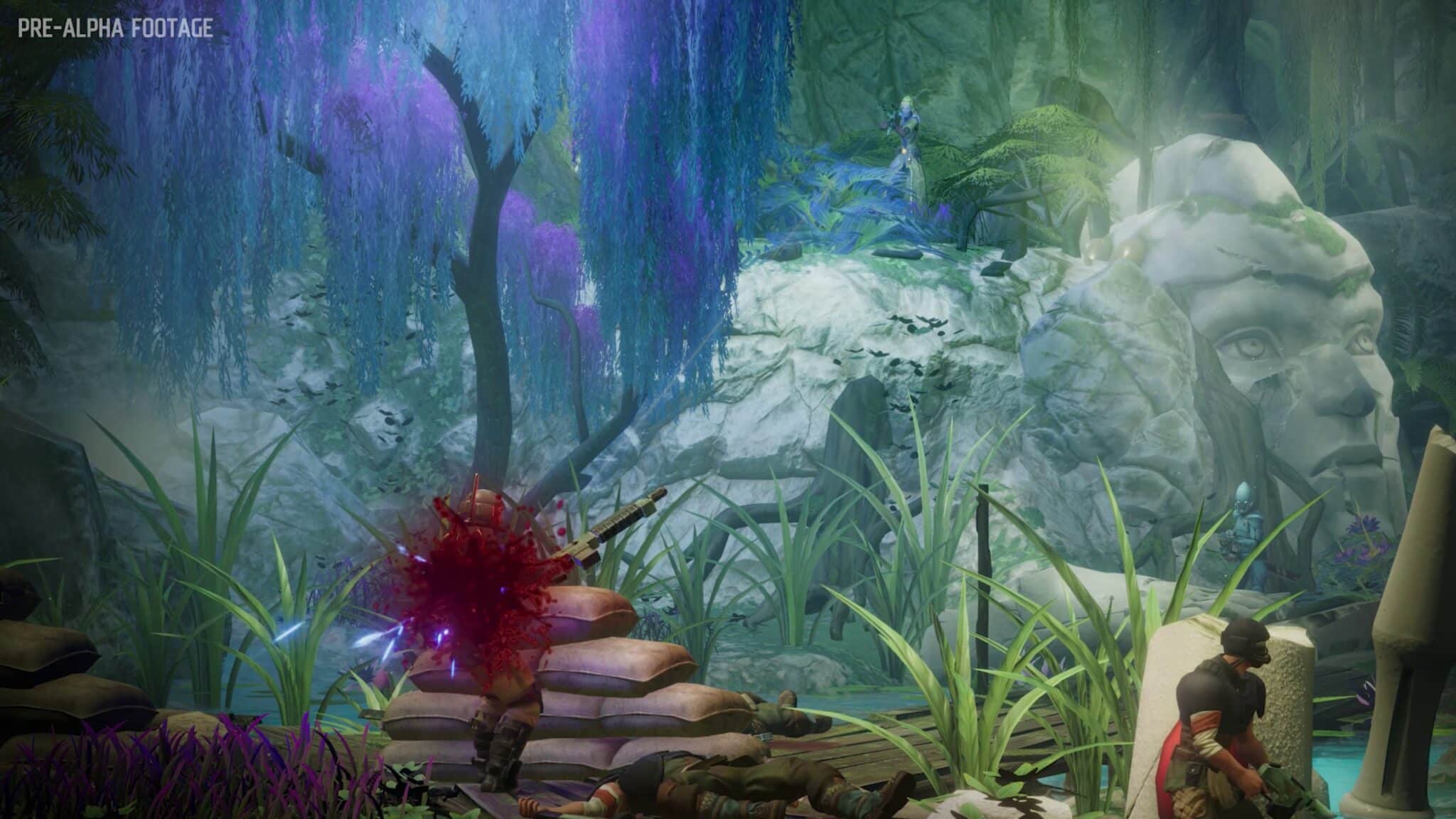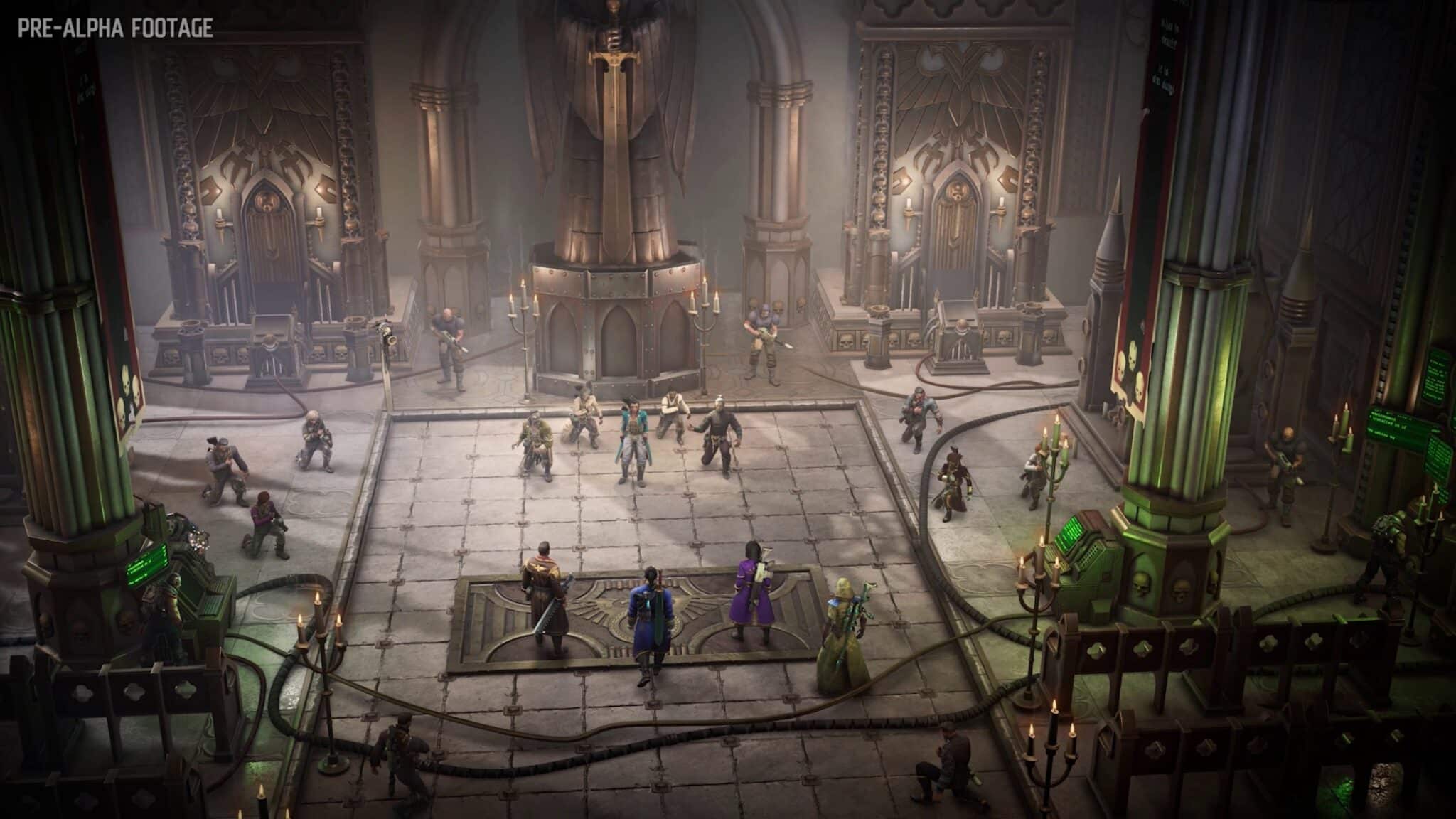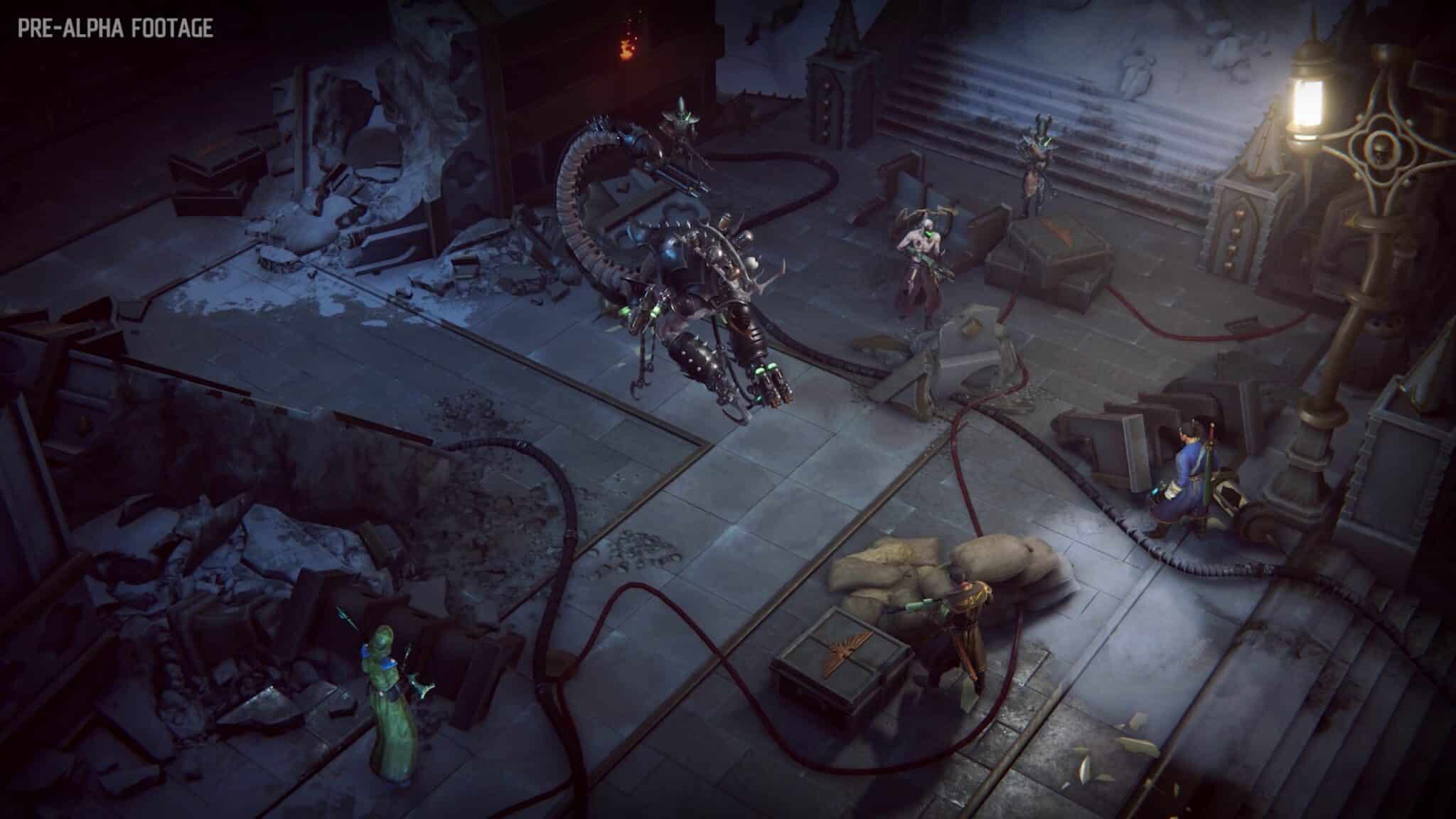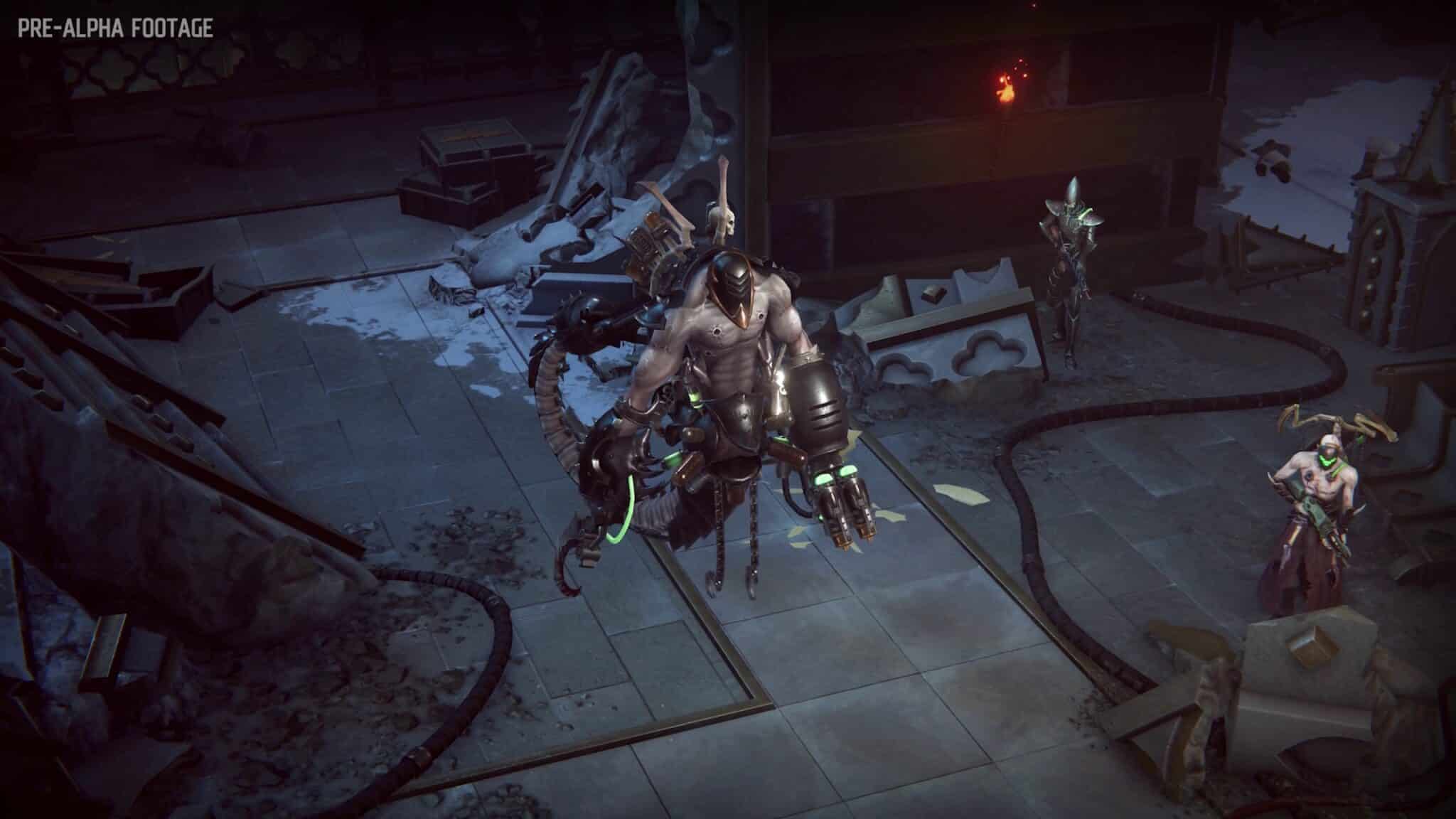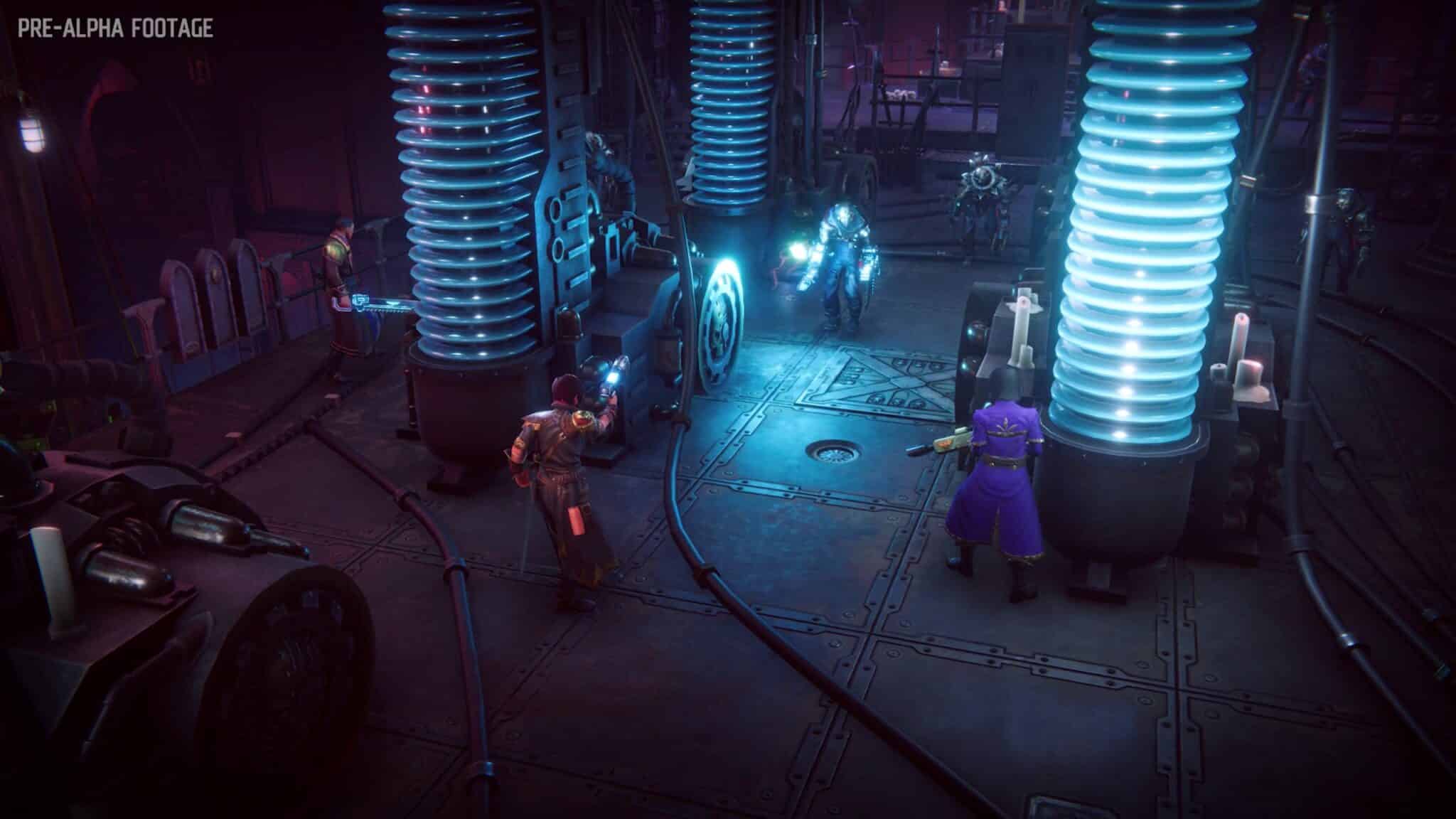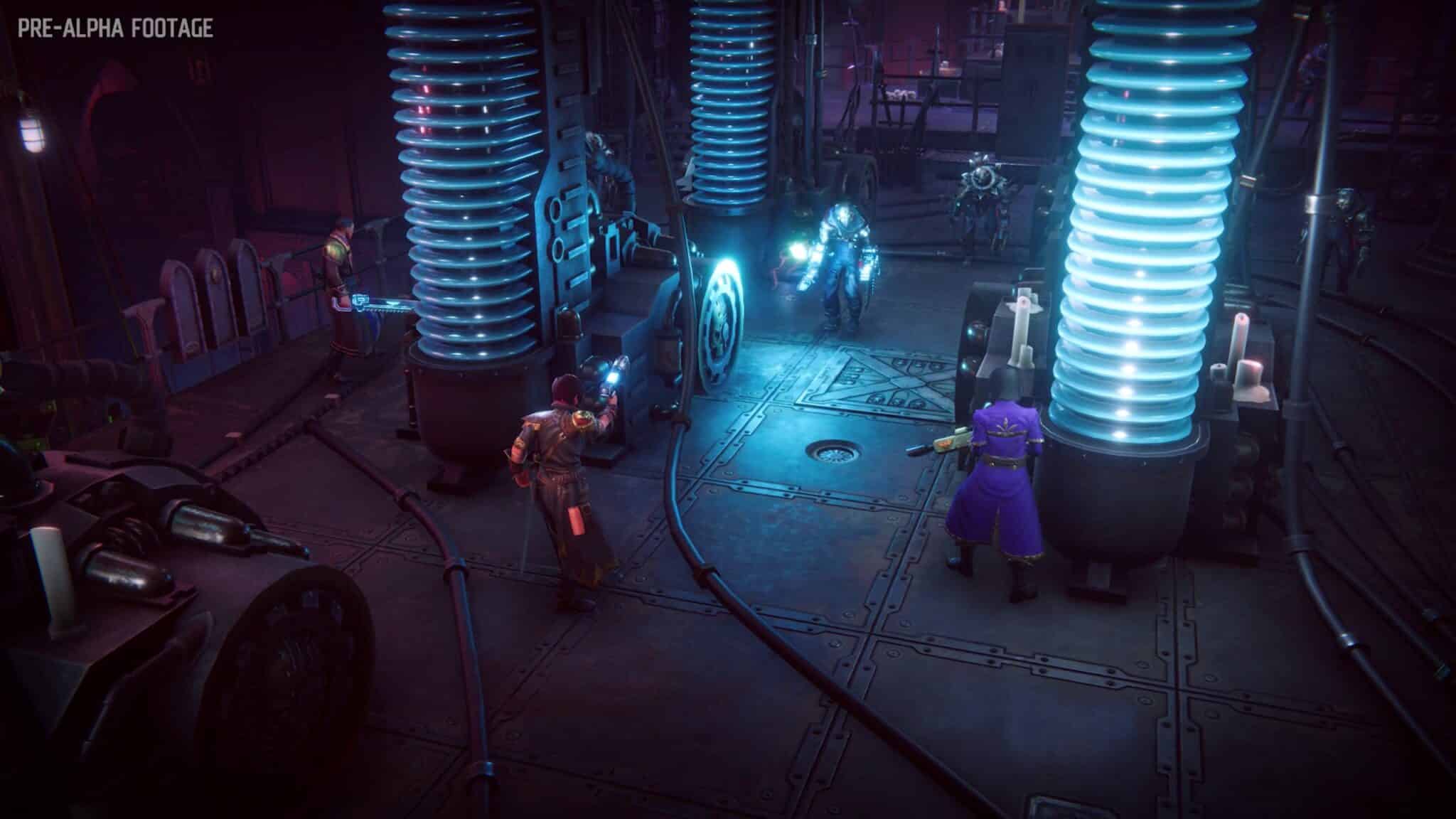The makers of the best role-playing game of 2021 are breaking new ground. We have seen the first gameplay of Rogue Trader and now know where these paths lead to.
When Owlcat announces a new game, I get more excited than a chaotic neutral Tiefling thief at a Spellcrafter. This studio has earned a very big place in my heart over the past few years. After all, it was this studio that gave me the best role-playing experiences of the last four years with Pathfinder: Kingmaker and its sequel Wrath of the Righteous.
So I was already on fire after the end credits of Wrath of the Righteous to find out how the journey would continue. I even peppered studio head Alexander Mishulin with questions more than once, always trying to tease out a little bit which role-playing system or Pathfinder adventure was next on the agenda.
But with all the anticipation, the announcement of Rogue Trader saddened me a little at first. Warhammer 40,000 again? Aren”t there really 40,000 games of it all the time? Does this universe really have to be used all the time? I was a little pissed off.
And sure, there hasn”t been a flawless oldschool RPG in this universe yet. But personally, I just see it far too often and it”s not one of my very favourite universes. I feel at home in classic fantasy.
Nevertheless, I am now very excited about the new role-playing game by Owlcat Games. Once, because this studio has earned my trust. But also because I have finally seen the first gameplay and have to say: This already looks insanely good!
Table of Contents
A new focus
At the outset, even though the gameplay presentation went on for almost an hour, I saw a vanishingly small portion of Rogue Trader. On the one hand, this was due to the fact that creative director Alex Gusev liked to lapse into a passionate explainer mode during the gameplay and then very insightfully explained all possible mechanics to me. But also because the battles in Rogue Trader are by nature much slower than was usual in Pathfinder.
For unlike the studio”s previous work, the new role-playing game dispenses completely with pausable real-time. Wrath of the Righteous already offered turn mode, but most of the battles took place with real-time in mind. The fact that Rogue Trader now relies entirely on turn-based combat changes a lot.
In the gameplay presentation, the group of six heroes leaves the landing ship to scour a devastated planet for survivors. In the process, however, the hero and his faithful are ambushed by the Drukhari. The dark elves of the 40K universe. There is hardly any dialogue or exploration to be seen, the presentation revolves mainly around the turn-based combat against these vile creatures.
Besides the Drukhari themselves, there are two Khymeras lurking at a staircase – monsters that permanently jump back and forth between reality and the parallel universe called Warp. Lore details like these are what make the universe interesting for accomplished storytellers like those at Owlcat, but they also pose a challenge. After all, newcomers should not be bludgeoned with abstract concepts.
So the ambush ignites and time freezes immediately. In the turn mode, action is finally taken in sequence. The first few seconds, however, already show that Rogue Trader is clearly even more different from Pathfinder than expected.
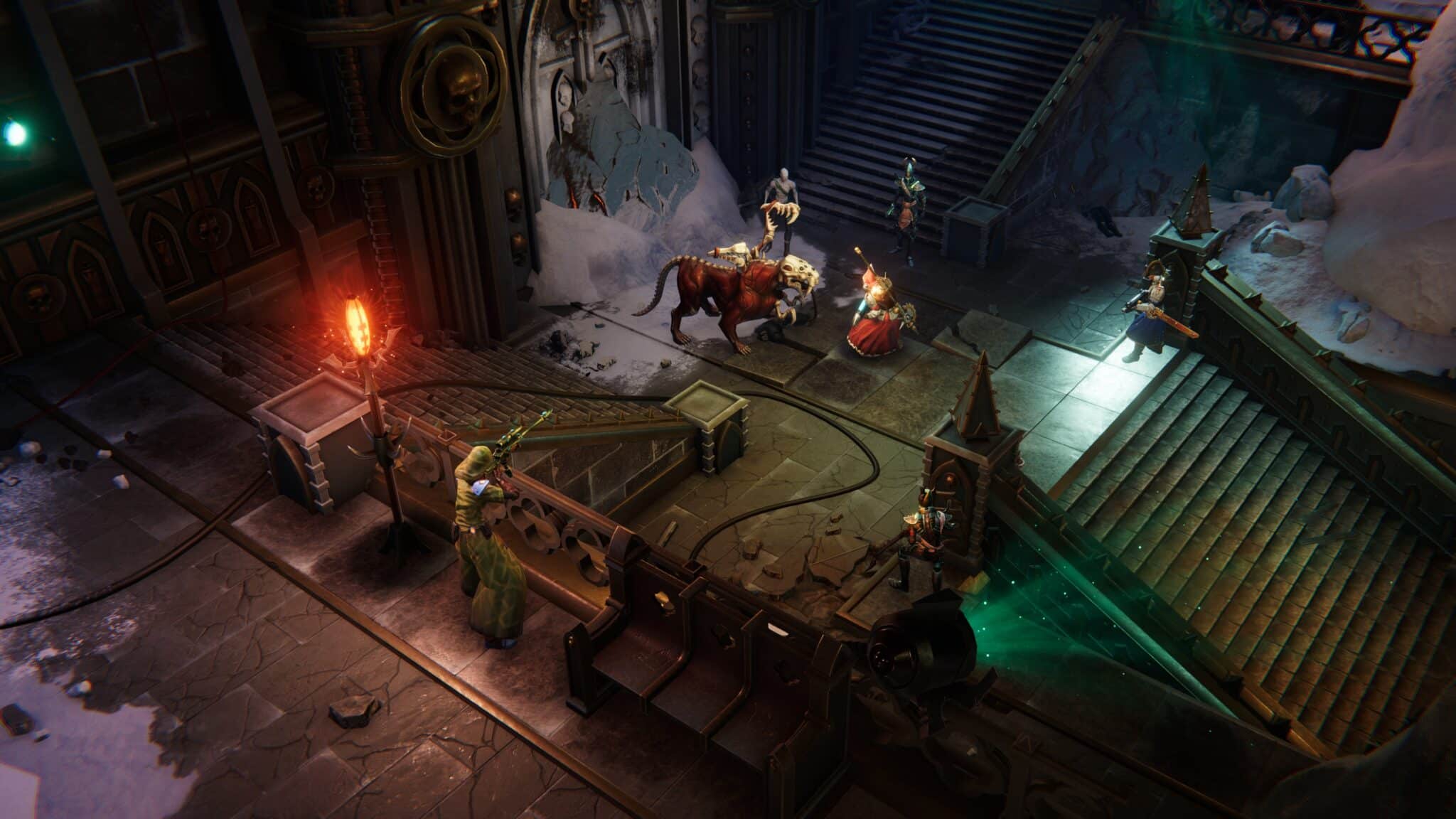
No Pathfinder with Warhammer skin
Graphically, Rogue Trader is on an almost identical level to Pathfinder. Of course, this is a different universe, but animations and graphic style clearly bear Owlcat”s signature. Even some icons are identical to those from Wrath of the Righteous – but that is almost certainly due to the early stage of development. Classic placeholders.
But for all the similarities, it”s the gameplay that really shows how different Rogue Trader is from Pathfinder. The fact that the battles are now completely designed for turn-based mode ultimately affects the entire game. The level structure, the enemy selection and also the frequency of battles adapt to the slower and more tactical style. Battles become less frequent, but more meaningful and require even more strategic decisions.
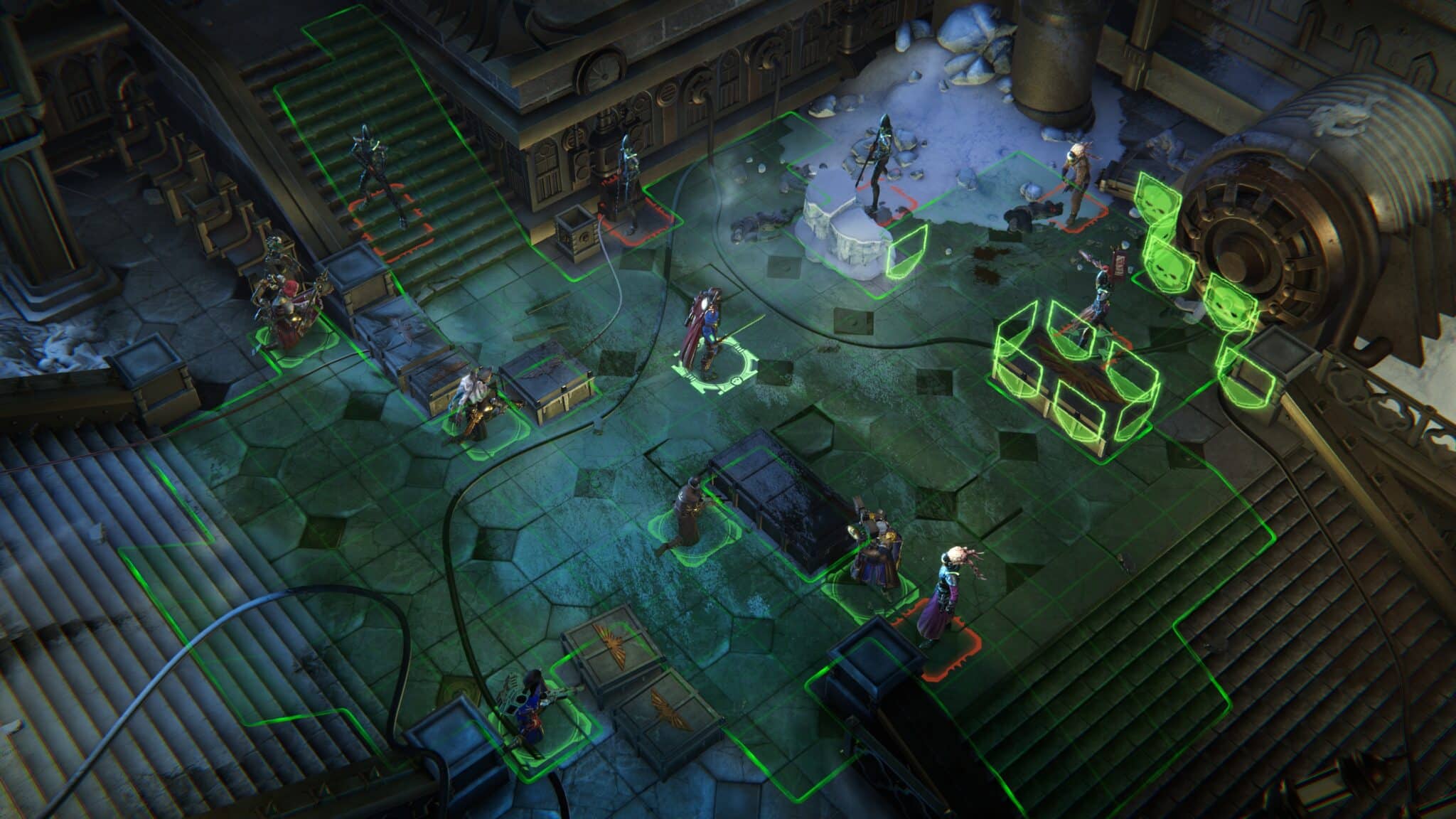
The interface is also different, after all Owlcat now relies on a movement grid in Rogue Trader. This sounds like a limitation at first, but it helps to get a better overview of abilities and actions. Gusev also describes experimenting with the grid as entertaining:
“When I was a kid, we often used chessboards as a base and toy soldiers as pieces when playing tabletop. And it”s fun to think about it a bit bigger, or to use the grid element for strategies. It”s easier to see where an opponent is and you can better gauge if an ally will fit in the perfect gap”
~ Alex Gusev
In gameplay, it quickly becomes apparent how the various actions use the grid. For example, scatter ranges of rifles or area effects can affect numerous squares and so can some melee weapons.
Magic and its risks
Unlike Pathfinder, Owlcat does not attempt to rework an existing rules system for the PC with Rogue Trader. An art that the studio succeeded in doing extremely well in Wrath of the Righteous and Kingmaker. Despite all the competence, it is still noticeable in places that the rules were actually intended more for a tabletop role-playing game. With Rogue Trader, Owlcat now plans to adapt even more dynamically to the laws of digital role-playing games. A few mechanics will be familiar to fans of various Warhammer RPGs or tabletop, but many mechanics come from Owlcat”s own pen this time.
Particularly exciting: the magic system works in a completely different way than you are surely used to in CRPGs. In fact, it”s no longer a matter of managing limited resources. Mana points or spell slots are completely out. But letting your psionics cast around unbridled would still be unwise.
However, such actions are only open if you are currently wetting the enemy in battle anyway. But there is a counterpart. If you get your armour heavily dented, low morale can also unlock special abilities. Only these are called desperate measures. The crucial difference: these actions come with a price. Thus, in the case of a desperate measure, the smuggler can also inflict great damage, only afterwards her rifle goes to pieces until the end of the fight.
While heroic actions bring a battle to a quick end, desperate measures are supposed to still be able to turn around a battle that was thought to be lost. But I won”t know if this is fun and exciting until I play it myself.
Accessibility instead of rule bead
You see: Rogue Trader”s battles work completely differently than they did in Pathfinder. Owlcat hopes above all to use this new system to better introduce even RPG beginners to their game. This is also shown by how the new class system works. Pathfinder is famous and infamous for its massive character editor.
Anyone starting a new game has a direct choice of dozens of character classes here. Many of them are extremely different from each other. This is exactly what makes this role-playing game so exciting, but also overwhelmingly complex. Rogue Trader is meant to release us into its world a little more tenderly.
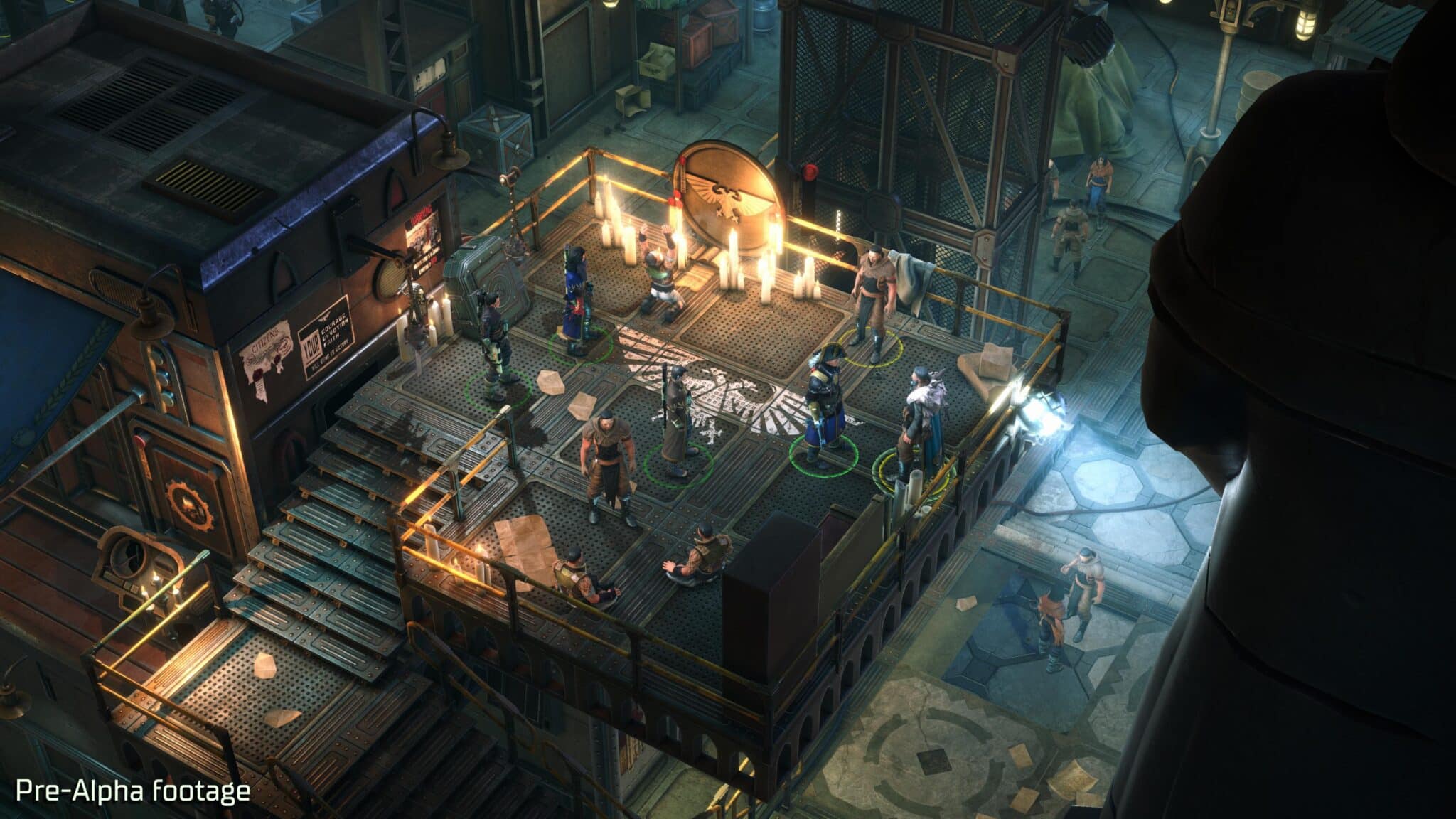
It is important for the studio to emphasise that they are not planning to lower their standards. But they are looking for a system that doesn”t throw a two-hundred-page rulebook at us. Basically, when creating our Rogue Trader, we initially only have the choice of four career paths – Adept (magic), Fighter (melee), Soldier (ranged) or Leader (support).
Doesn”t sound like much variance. However, Gusev is emphatic that no player character should resemble another. After all, each career becomes more specialised as the game progresses, and the rogue trader”s background has an additional effect on the choice of skills.
For example, a companion is in the service of the Inquisition and begins his career as a fighter. For the time being, this only means that he knows melee combat. From there, further possibilities are open to him. In the case of this Inquisitor, he has chosen a career as an assassin, specialising in damage against single targets.
Different yet the same
By the way, the Inquisitor is a good example of how Rogue Trader lets you have a big impact on the story and your companions. As the Inquisitor, he is actually subordinate to the Empire and acts completely in its interests. However, in the course we can try to make him fall away from his faith or at least make him think about it.
Because yes, Rogue Trader is very different from Pathfinder in many ways. And that”s good, because especially in the battles it wouldn”t hurt if Owlcat would break away from the pen&paper template more often and instead give preference to a system that fits better to a computer game. After all, that was the great strength of Divinity: Original Sin 2.
At the same time, I”m not worried that Rogue Trader will lose sight of the most important aspects of the Owlcat games. And that is depth of play and the telling of gripping stories. I can”t prove this thesis yet. But already after the presentation I am really excited about this role-playing game. And that”s despite the fact that Warhammer 40K is at the bottom of my list of desired scenarios.
But in the end, the scenario is not that important for games by Owlcat. As long as the team remains as passionate as ever. And if the conversation with Alex Gusev showed me anything, it”s that there”s no lack of it this time either.
Editorial conclusion
The people who work at Owlcat are enormously likeable nerds. Pathfinder already showed how much passion this team always tries to express their fascination for role-playing games as PC games. And it is precisely this passion that now gives me hope for Rogue Trader. Because even if I rarely feel anything at the sight of a flying Inquisition war citadel or marines in skull-covered plate armour, it”s different with the people behind Rogue Trader.
These are people who really care about this world an incredible amount and are now trying to live out their vision of a good role-playing game in one of their favourite universes. That certainly doesn”t automatically guarantee a good game, but it”s the same passion that was evident at every turn in Pathfinder.
I”m definitely looking forward to Rogue Trader. Maybe the team will even succeed in mitigating some of the weaknesses of the Pathfinder parts with the new focus on turn-based combat. Personally, I”ve been forgoing real-time with pause for the most part anyway.

